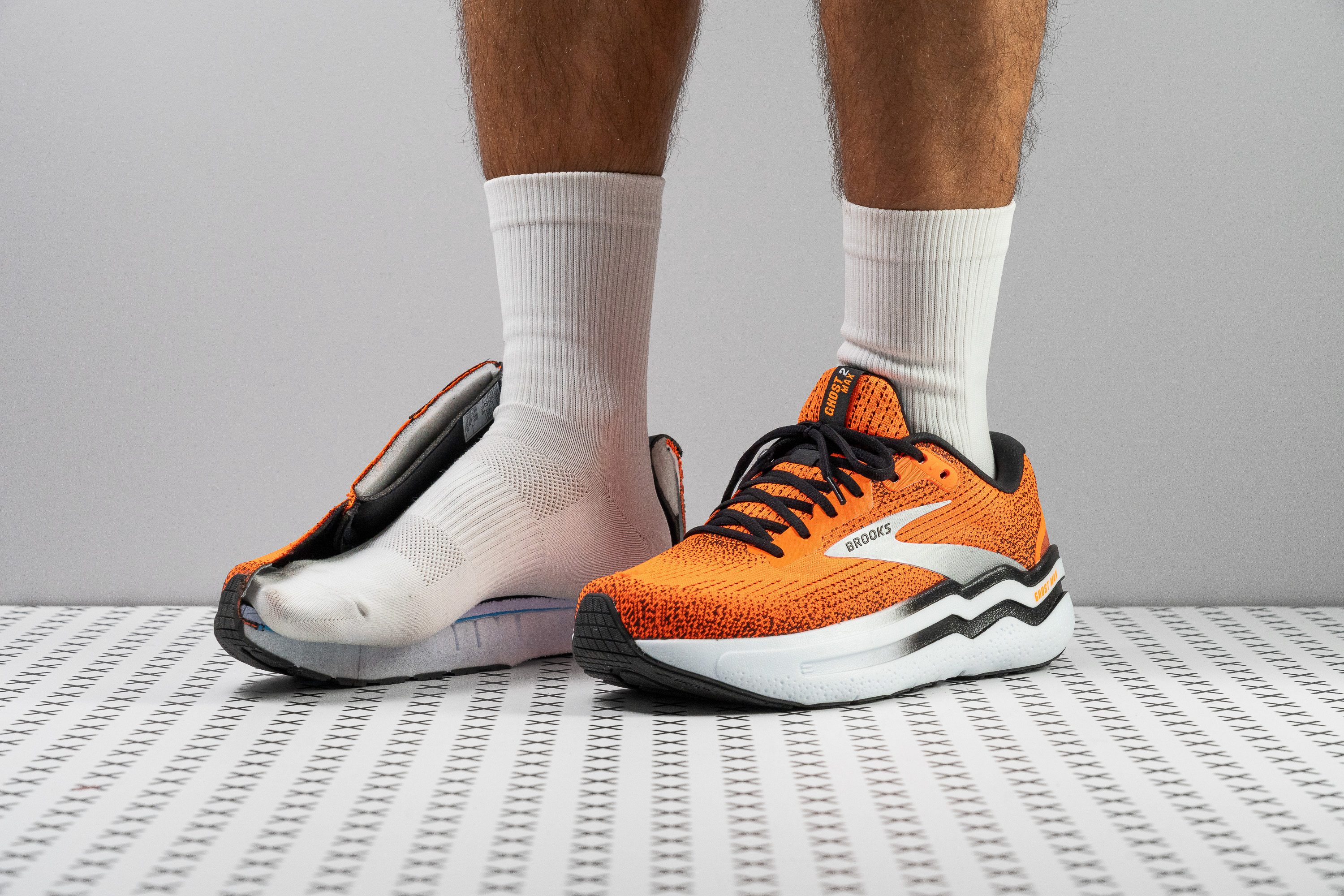Our verdict
Pros
- Improved energy return
- Fantastic value
- Great durability
- Breathable upper
- Outsole grips well even in wet surfaces
- Doubles as a walking shoe
- Excels at easy paces
- Superior stability
- Ready for long runs
Cons
- Would benefit from softer foam
- Clunky for heel strikers
- A bit heavy
- Non-gusseted tongue
Audience verdict
- Top 4% most popular running shoes
Comparison
The most similar running shoes compared
+ + Add a shoe | |||||
|---|---|---|---|---|---|
| Audience score | 85 Good! | 89 Great! | 89 Great! | 86 Good! | |
| Price | $150 | $130 | $160 | $160 | |
| Pace | Daily running | Daily running | Daily running | Daily running | |
| Shock absorption | High | High | High | High | |
| Energy return | Moderate | Low | Moderate | Low | |
| Traction | High | Moderate | High | High | |
| Arch support | Neutral | Neutral | Neutral | Neutral | |
| Weight lab Weight brand | 10.8 oz / 305g 10.9 oz / 309g | 9.7 oz / 274g 9.5 oz / 270g | 9.9 oz / 282g 10 oz / 283g | 10.7 oz / 303g 10.8 oz / 306g | |
| Drop lab Drop brand | 9.9 mm 6.0 mm | 10.5 mm 5.0 mm | 8.7 mm 5.0 mm | 7.3 mm 6.0 mm | |
| Strike pattern | HeelMid/forefoot | Heel | HeelMid/forefoot | Mid/forefoot | |
| Size | True to size | True to size | True to size | True to size | |
| Midsole softness | Balanced | Soft | Soft | Soft | |
| Difference in midsole softness in cold | Normal | Normal | Normal | Normal | |
| Toebox durability | Decent | Bad | Decent | Decent | |
| Heel padding durability | Good | Decent | Good | Good | |
| Outsole durability | Good | Good | Good | Good | |
| Breathability | Breathable | Breathable | Breathable | Moderate | |
| Width / fit | Medium | Medium | Medium | Medium | |
| Toebox width | Medium | Medium | Narrow | Medium | |
| Stiffness | Stiff | Moderate | Stiff | Stiff | |
| Torsional rigidity | Stiff | Stiff | Stiff | Stiff | |
| Heel counter stiffness | Stiff | Stiff | Stiff | Stiff | |
| Heel lab Heel brand | 39.0 mm 39.0 mm | 40.7 mm 40.0 mm | 39.3 mm 39.0 mm | 38.5 mm 39.0 mm | |
| Forefoot lab Forefoot brand | 29.1 mm 33.0 mm | 30.2 mm 35.0 mm | 30.6 mm 34.0 mm | 31.2 mm 33.0 mm | |
| Widths available | NormalWideX-Wide | NormalWide | NormalWide | NormalWideX-Wide | |
| Orthotic friendly | ✓ | ✓ | ✓ | ✓ | |
| Season | SummerAll seasons | SummerAll seasons | SummerAll seasons | All seasons | |
| Removable insole | ✓ | ✓ | ✓ | ✓ | |
| Ranking | #443 Bottom 35% | #103 Top 27% | #118 Top 31% | #198 Bottom 48% | |
| Popularity | #22 Top 4% | #277 Bottom 27% | #94 Top 25% | #20 Top 6% |
Who should buy
We think the Brooks Ghost Max 2 is an outstanding choice for:
- Fans of the original Ghost Max, or any loyal Ghost runner looking for added cushioning.
- Runners seeking a high-stack, durable daily trainer that offers impressive comfort at a reasonable price.
- Beginners interested in trying a maximalist shoe without the premium price tag.
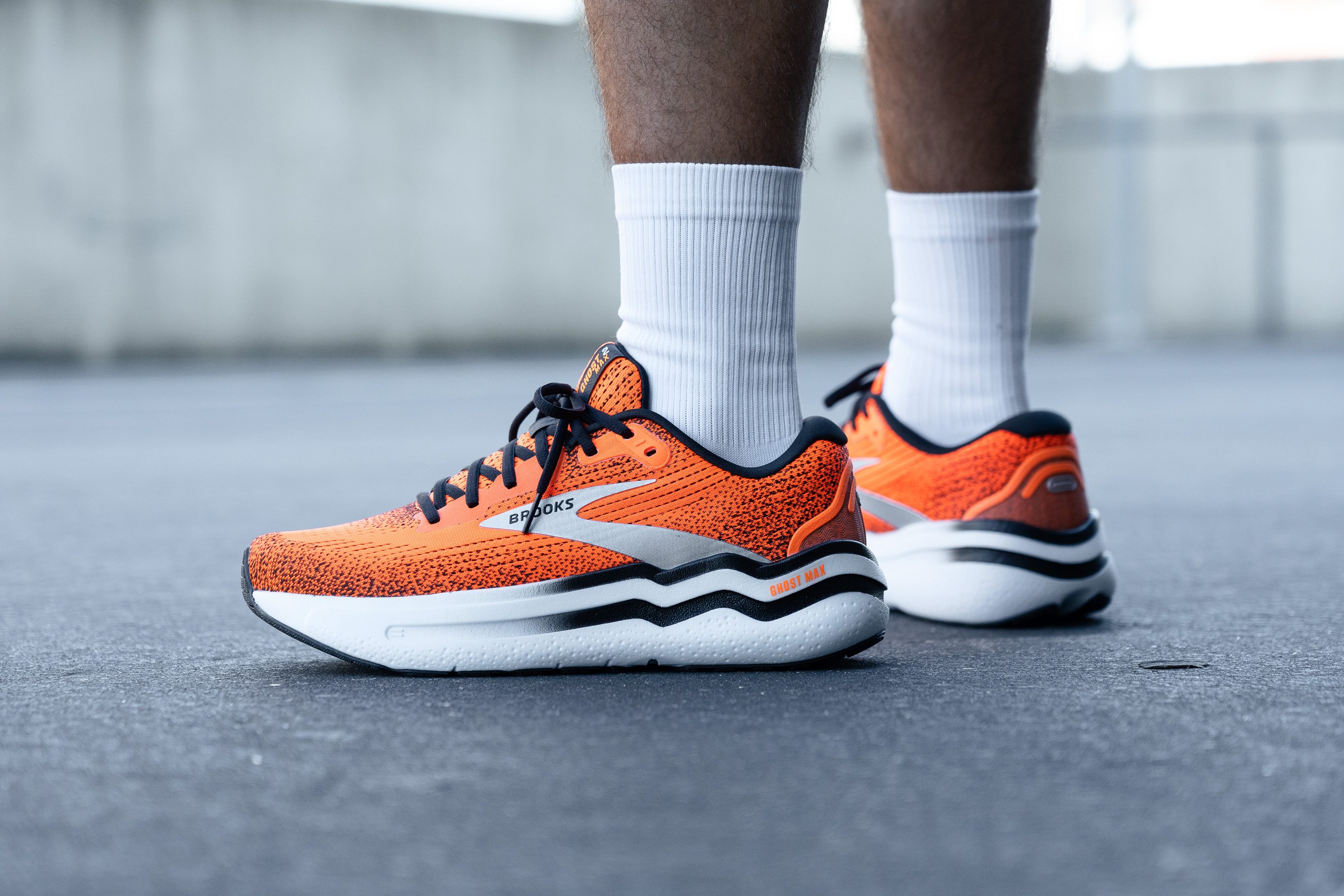
Who should NOT buy
We think the Ghost Max 2 missed a big opportunity to lighten up from its predecessor. Instead, it adds weight, so if a nimble ride is a priority, consider the ASICS Novablast 4. It offers similar cushioning and price point but feels significantly better at faster paces.
In our view, the Ghost Max 2’s midsole, while not overly firm, lacks the cloud-like ride some runners seek in a high-stack shoe. For those desiring a softer, cushioned experience, we suggest the New Balance Fresh Foam X More v5, featuring one of the softest foams we've tested in a maximalist running shoe.
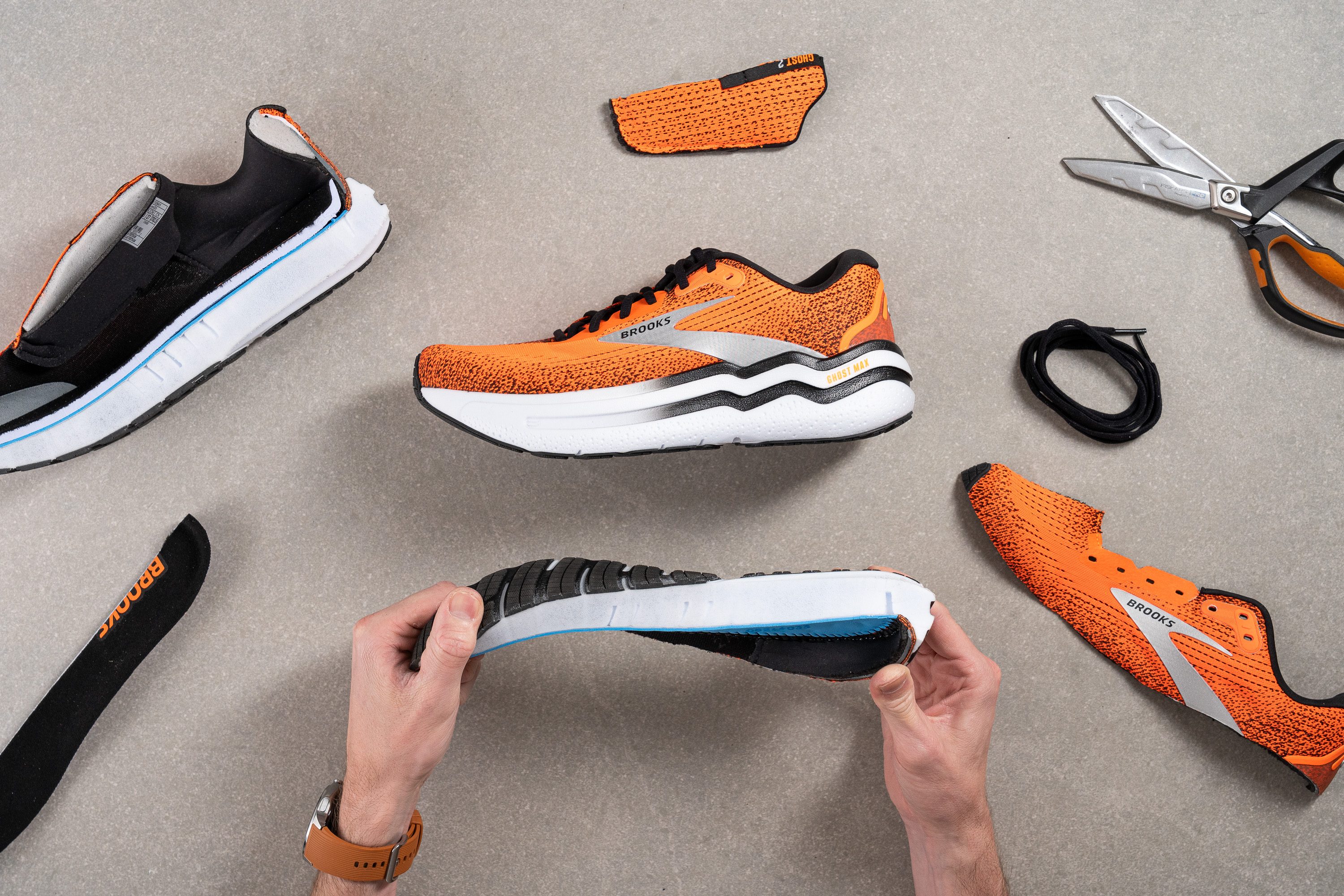
Cushioning
Shock absorption
The Ghost Max 2 inherits the high shock absorption of its predecessor with 138 SA in the heel and pushes it further in the forefoot to reach 121 SA. That’s ideal for midfoot and forefoot strikers eyeing this shoe for long runs.
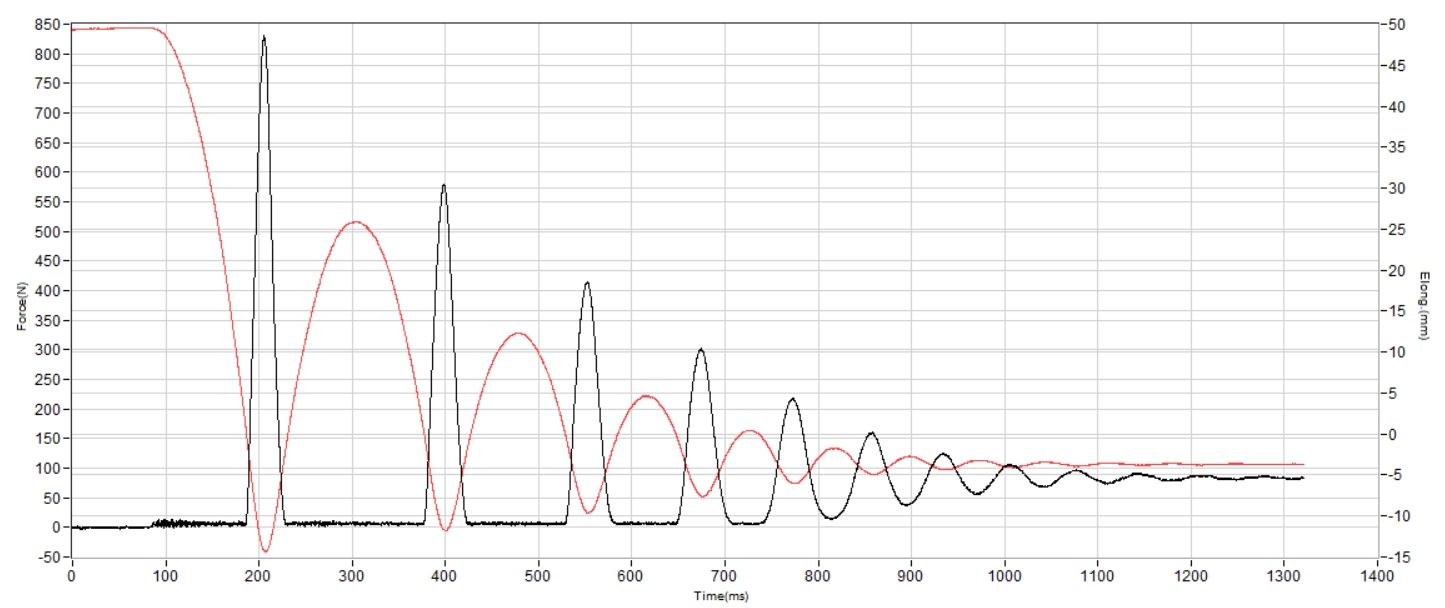
| Ghost Max 2 | 138 SA |
| Average | 130 SA |
Energy return
We also found a slight boost in energy return, though it’s definitely hard to notice underfoot. It’s creeping closer to 60%, but still falls short at 58.9%. Come on, Brooks... you’re almost there!
| Ghost Max 2 | 58.9% |
| Average | 58.6% |
Heel stack
This shoe earns the “Max” moniker for a reason—its impressive 39.0 mm heel stack height.
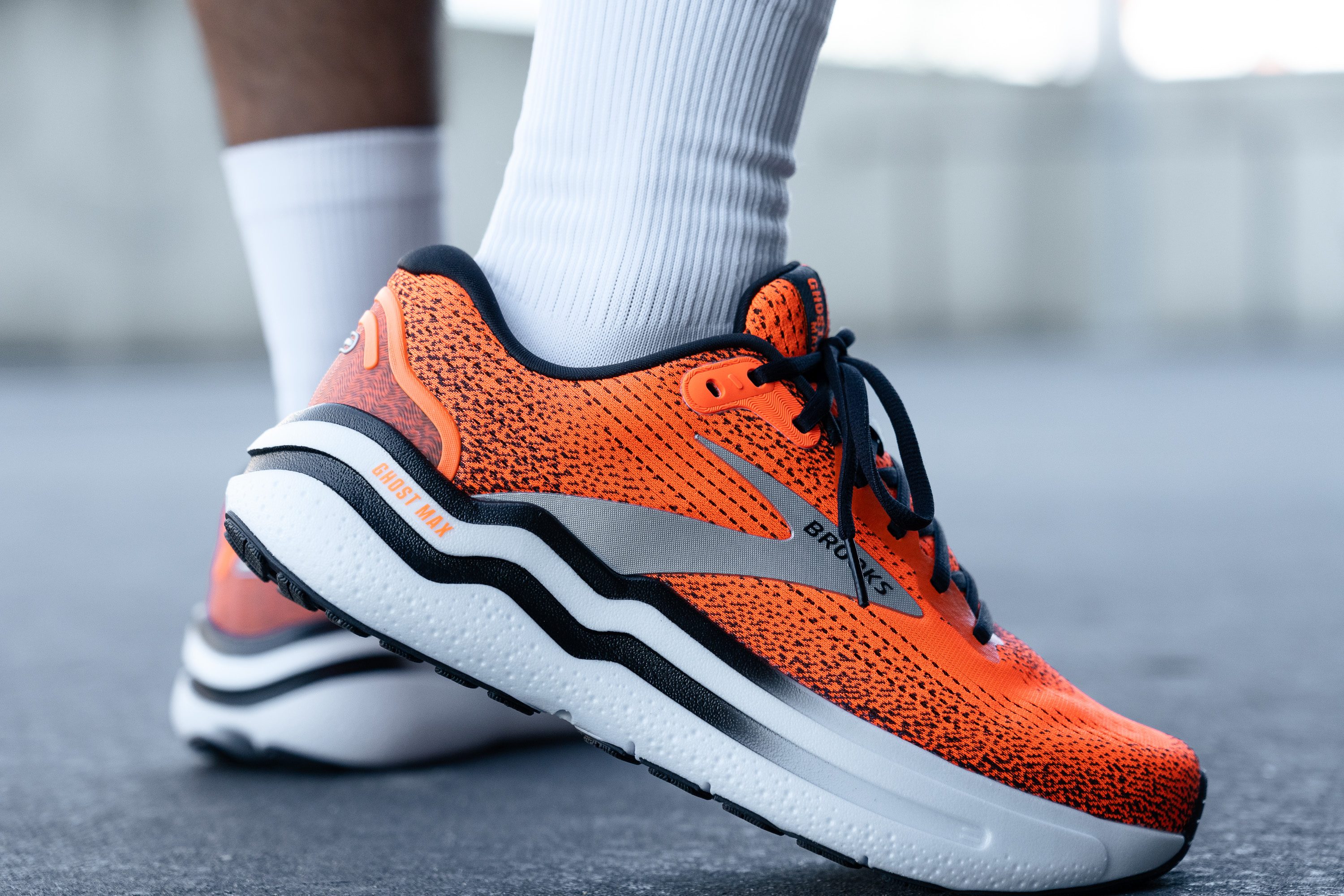
In our view, the Max 2 is the perfect Ghost for those of you with heavier builds.
We found it 3.9 mm taller than the Brooks Ghost 16, delivering a welcome boost for those long runs marathoners crave.
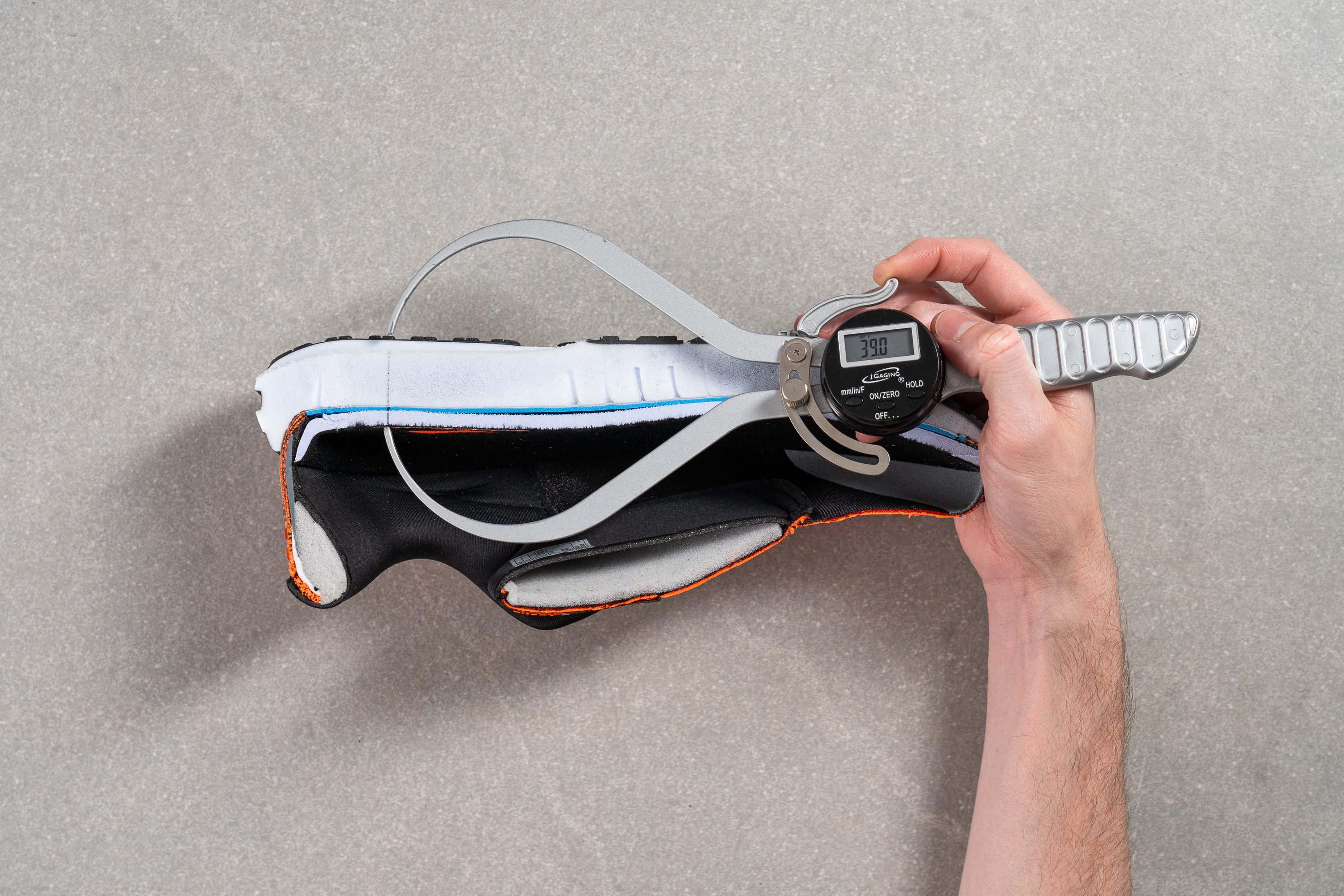
| Ghost Max 2 | 39.0 mm |
| Average | 34.8 mm |
Forefoot stack
Most of the cushioning upgrades in the Ghost Max 2 are focused in the forefoot, making it especially rewarding for midfoot and forefoot strikers. We firmly believe that these runners will truly benefit from the added underfoot comfort.
While the regular Ghost 16 offers 22.7 mm in this area—consistent with its high-drop design—the Ghost Max 2 brings 29.1 mm, adding 6.4 mm of foam under the ball of your foot. We think that this substantial increase transforms the shoe from an everyday workhorse to a superb long-distance companion.
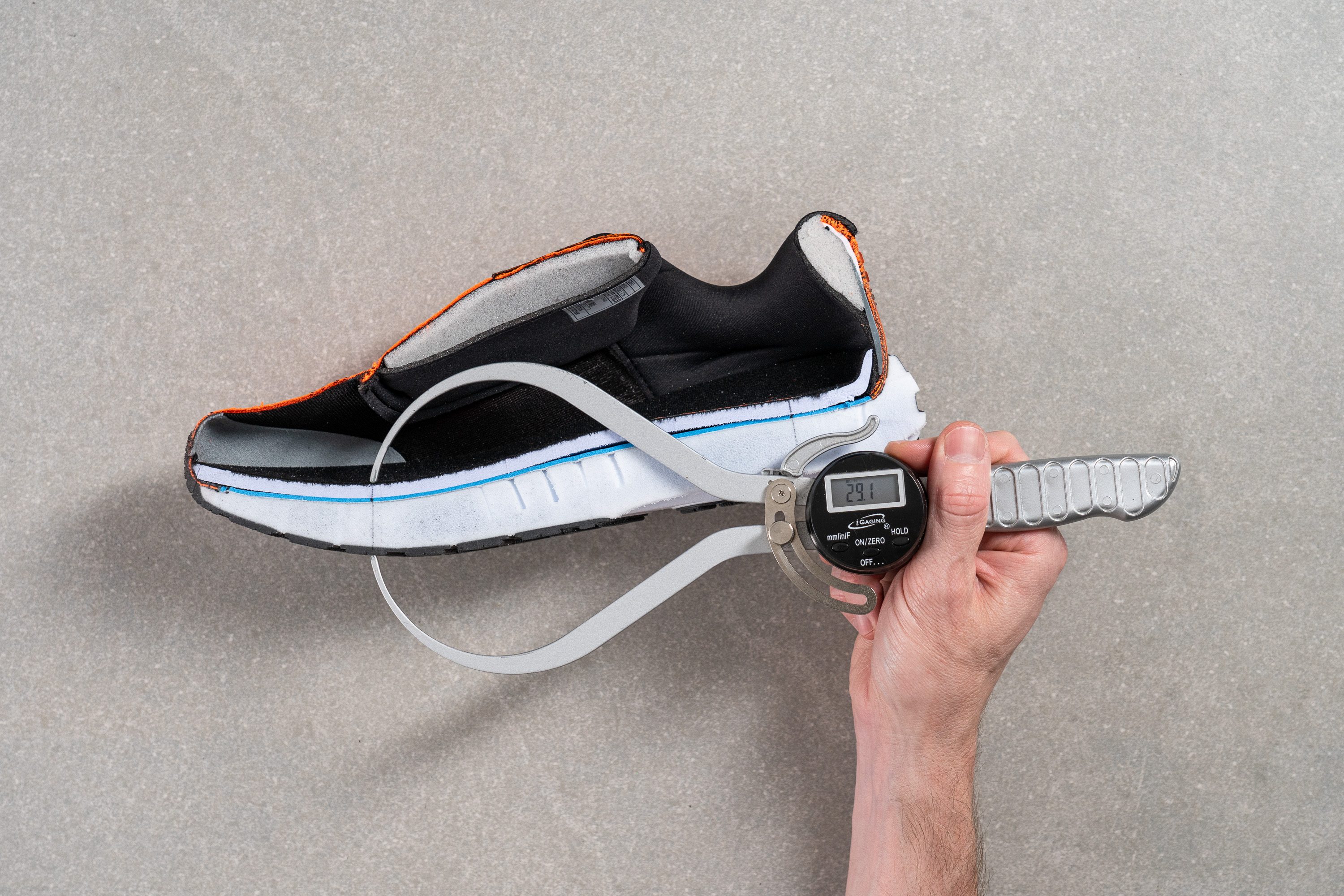
| Ghost Max 2 | 29.1 mm |
| Average | 26.2 mm |
Drop
Aside from the stack height increase, the most noticeable difference between the regular Ghost, with its 12 mm heel-to-toe drop, and the Ghost Max, listed as 6 mm, is indeed the drop. However, our measurements don’t fully align with Brooks' specifications.
Following World Athletics guidelines, we measured an actual drop of 9.9 mm—much closer to an 10-mm feel on runs than the claimed 6 mm. This discrepancy aligns with our experience from the OG Ghost Max, where we also found similar differences from Brooks' official specs.
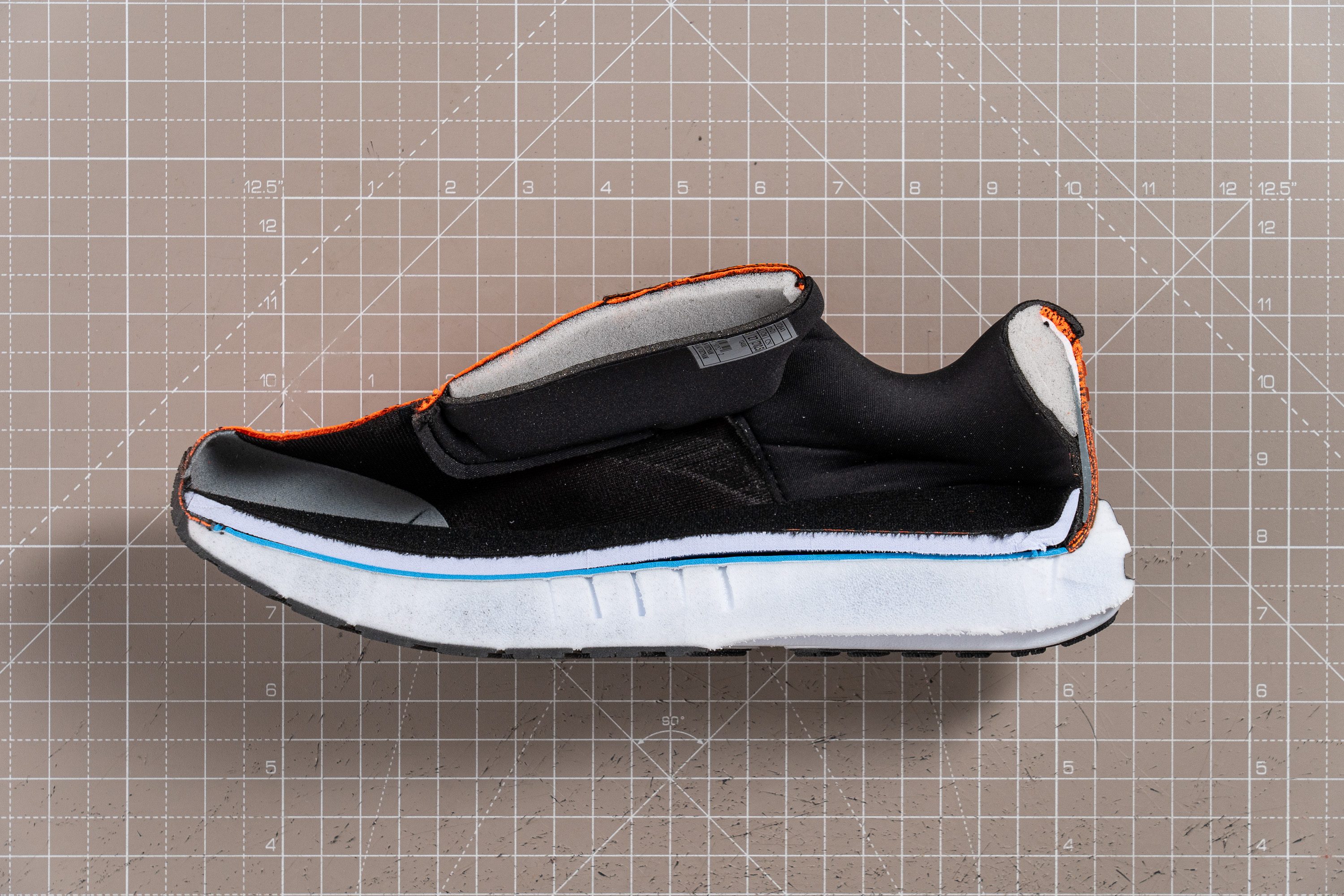
| Ghost Max 2 | 9.9 mm |
| Average | 8.6 mm |
Midsole softness
The standout upgrade in the Ghost Max 2 over its predecessor is the midsole. We discovered that Brooks introduced DNA Loft v3—a supercritical, nitrogen-infused EVA.
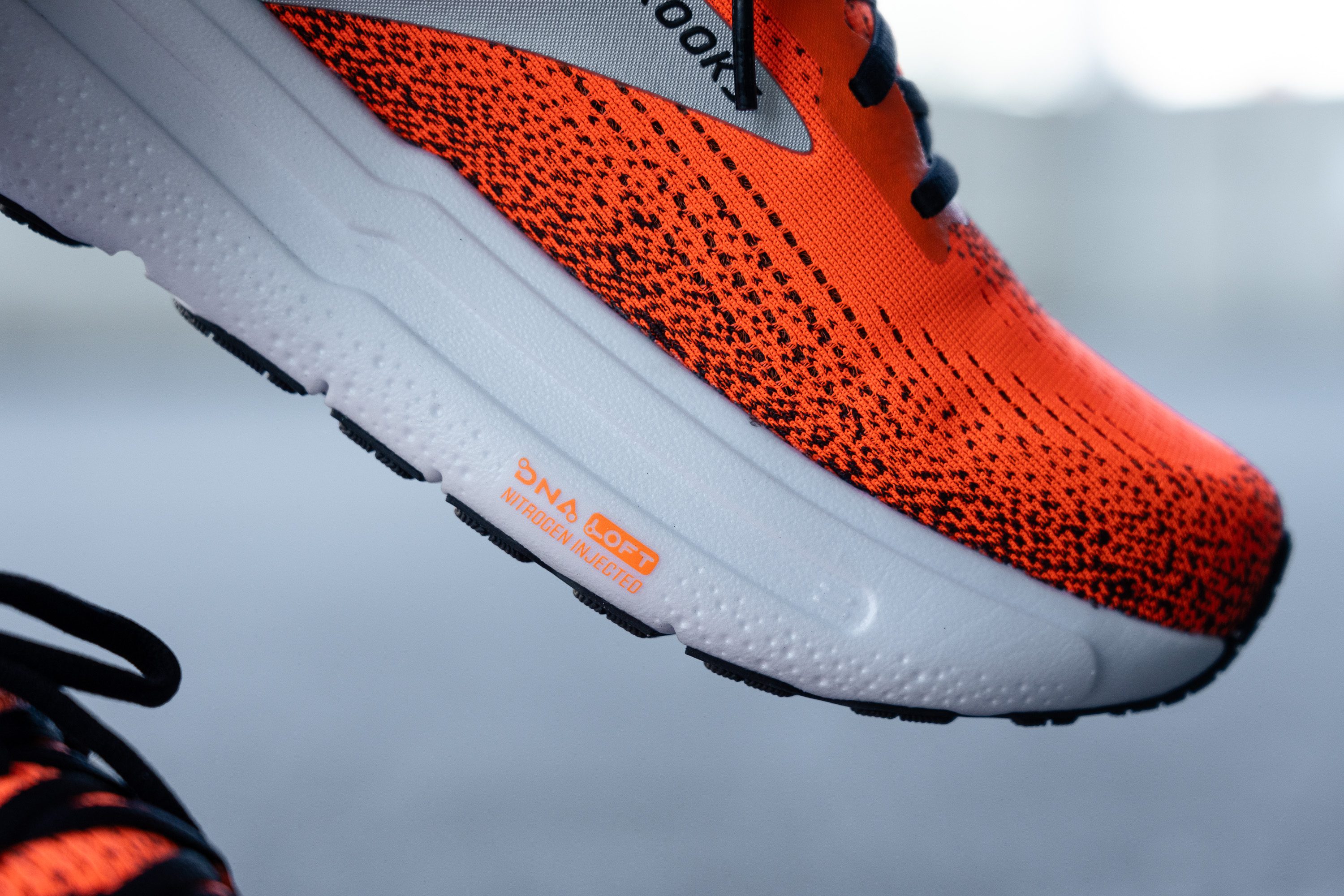
Despite its airy name, DNA Loft v3 is a bit firm when compared to other supercritical foams. Our Shore A durometer confirmed this with a reading of 20.6 HA. Sure, it's not as rigid as the On Cloudflyer 5, but if you see this one marketed as “cloud-soft,” don’t be fooled, it’s not.
While foam softness often depends on personal preference, we believe that a slightly softer feel would have been ideal for the Ghost Max 2, especially as it also feels a bit stiff while running. Again, for those expecting a plush ride due to the midsole’s maximalist design, it’s worth noting that it’s firmer than it looks.
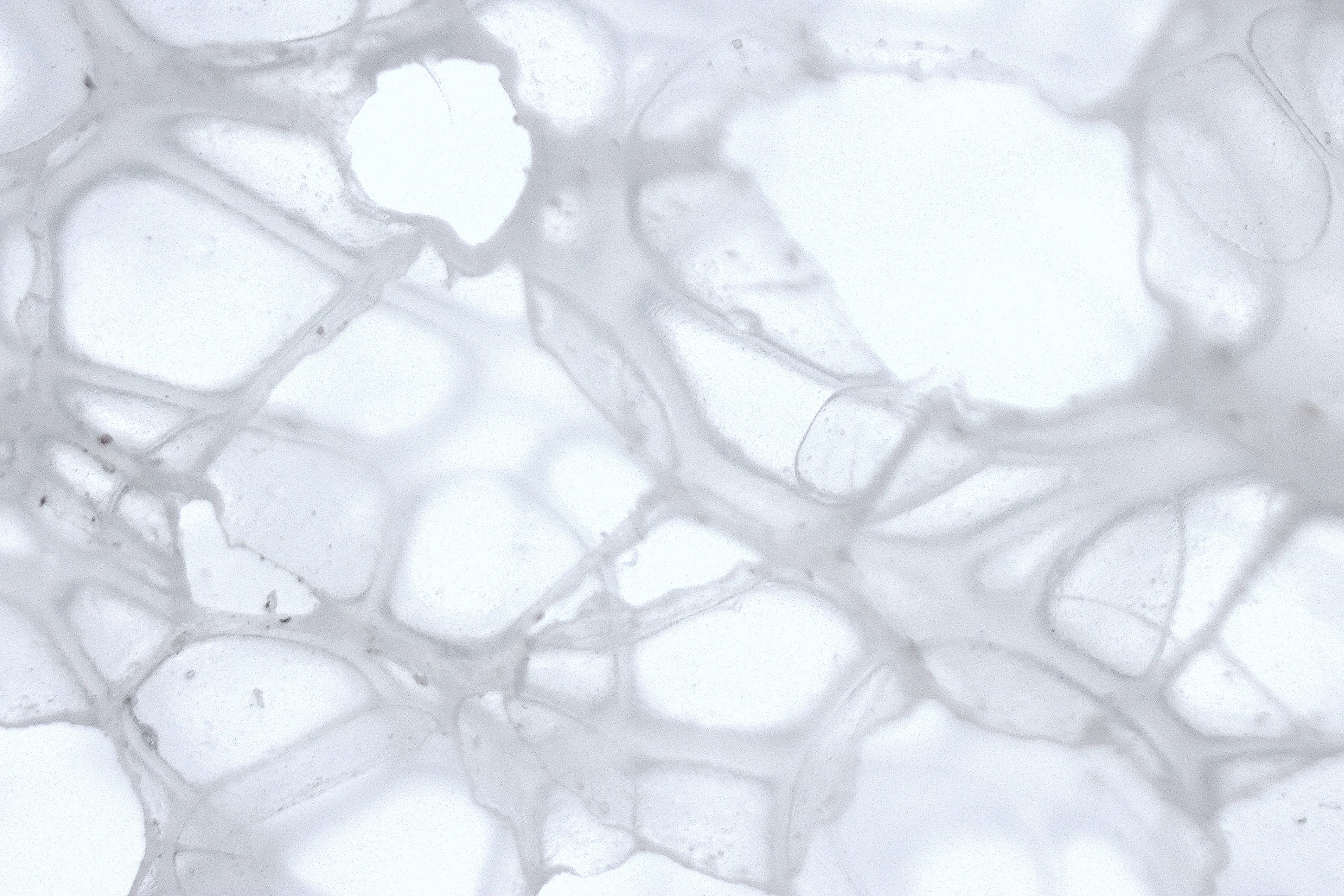
To examine DNA Loft v3 closely, we also used our microscope. In our view, the visible nitrogen-infused bubbles demonstrate the foam’s bouncy and lightweight qualities. Indeed, this third version of DNA Loft brings significant improvement over the v2 in terms of energy return, but keep in mind that it definitely feels much firmer underfoot.
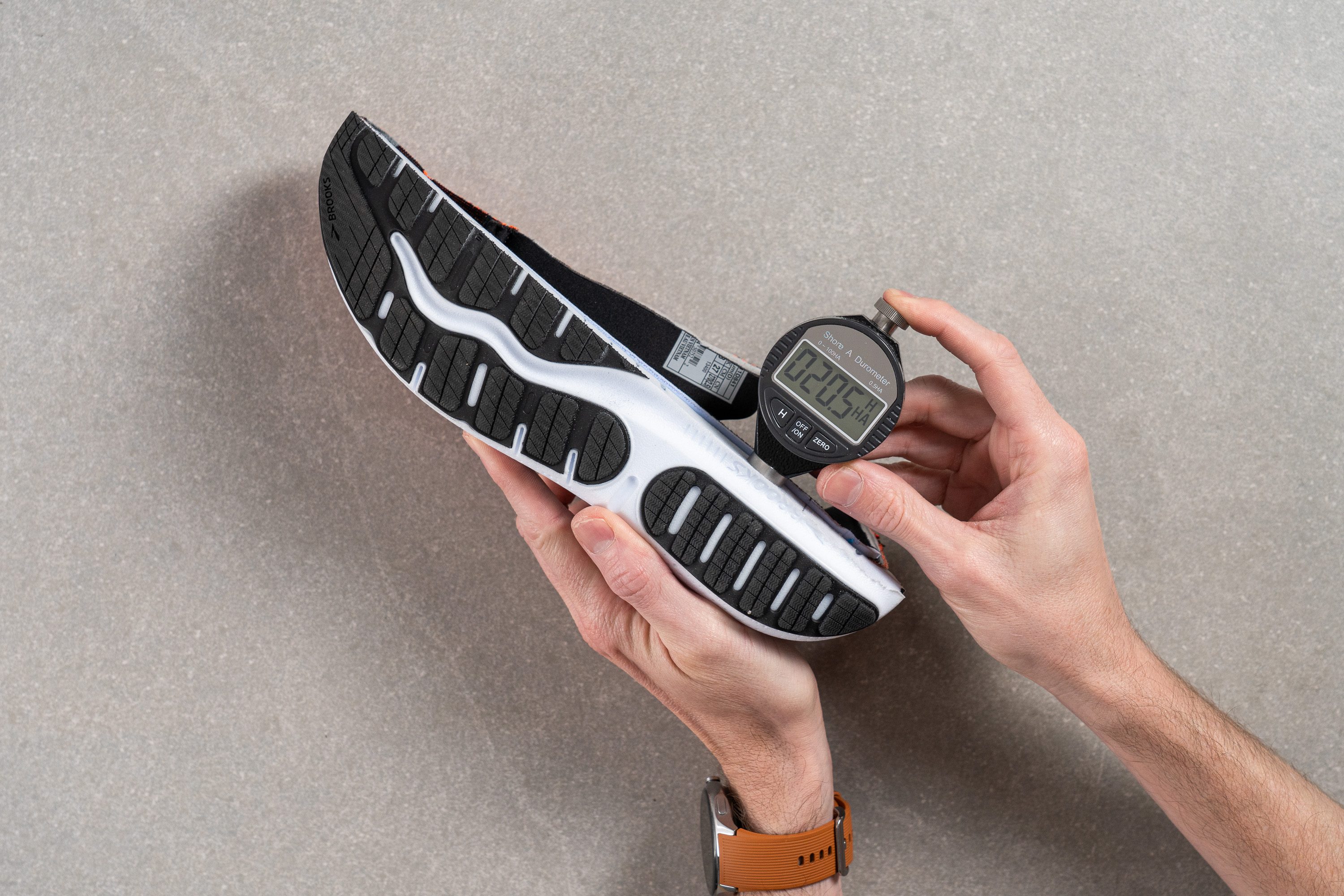
| Ghost Max 2 | 20.6 HA |
| Average | 20.4 HA |
Rocker
Brooks claims that the shoe’s GlideRoll Rocker technology is designed to promote an efficient gait. While we don’t dispute this, in our experience, it’s simply a standard forefoot rocker with a fancy name. It begins at the usual spot for daily trainers and rises just 4 cm.
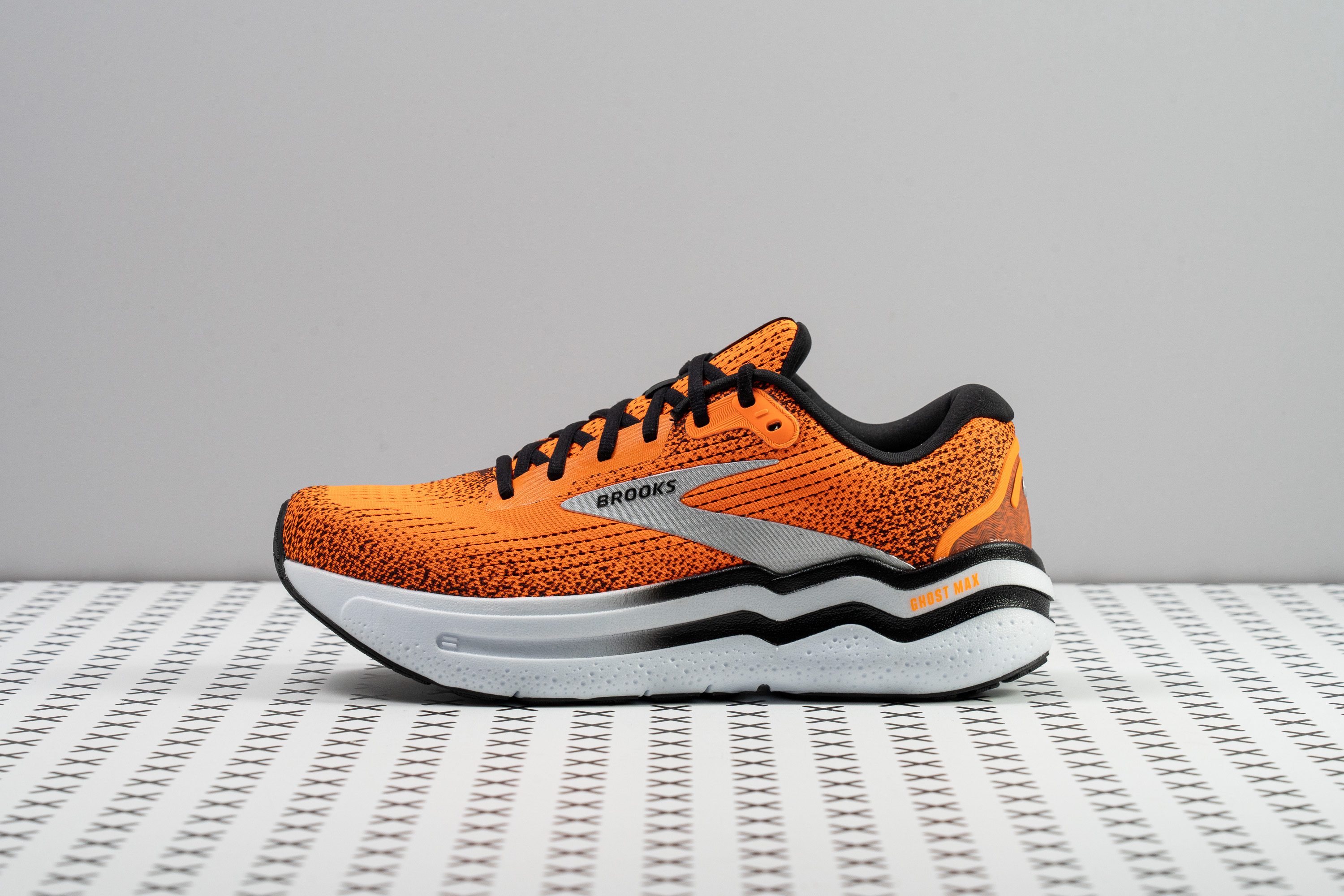
The heel design, however, was a bit more unexpected. With a minimal heel bevel for such a high stack height, it reinforced our impression during testing—this shoe is clearly more tailored to forefoot and midfoot strikers, providing little assistance in transitions for rearfoot strikers.
Size and fit
Size
Brooks Ghost Max 2 fits true to size (162 votes).
Internal length
| Ghost Max 2 | 274.4 mm |
| Average | 269.4 mm |
Width / Fit
Those who appreciated the fit of the Ghost Max v1 will enjoy this update, as the Ghost Max 2 delivers a nearly identical fit.
The shoe now measures 96.5 mm at its widest point, offering a bit more space than before without feeling overly generous, and it will deliver a solid lockdown for most runners.
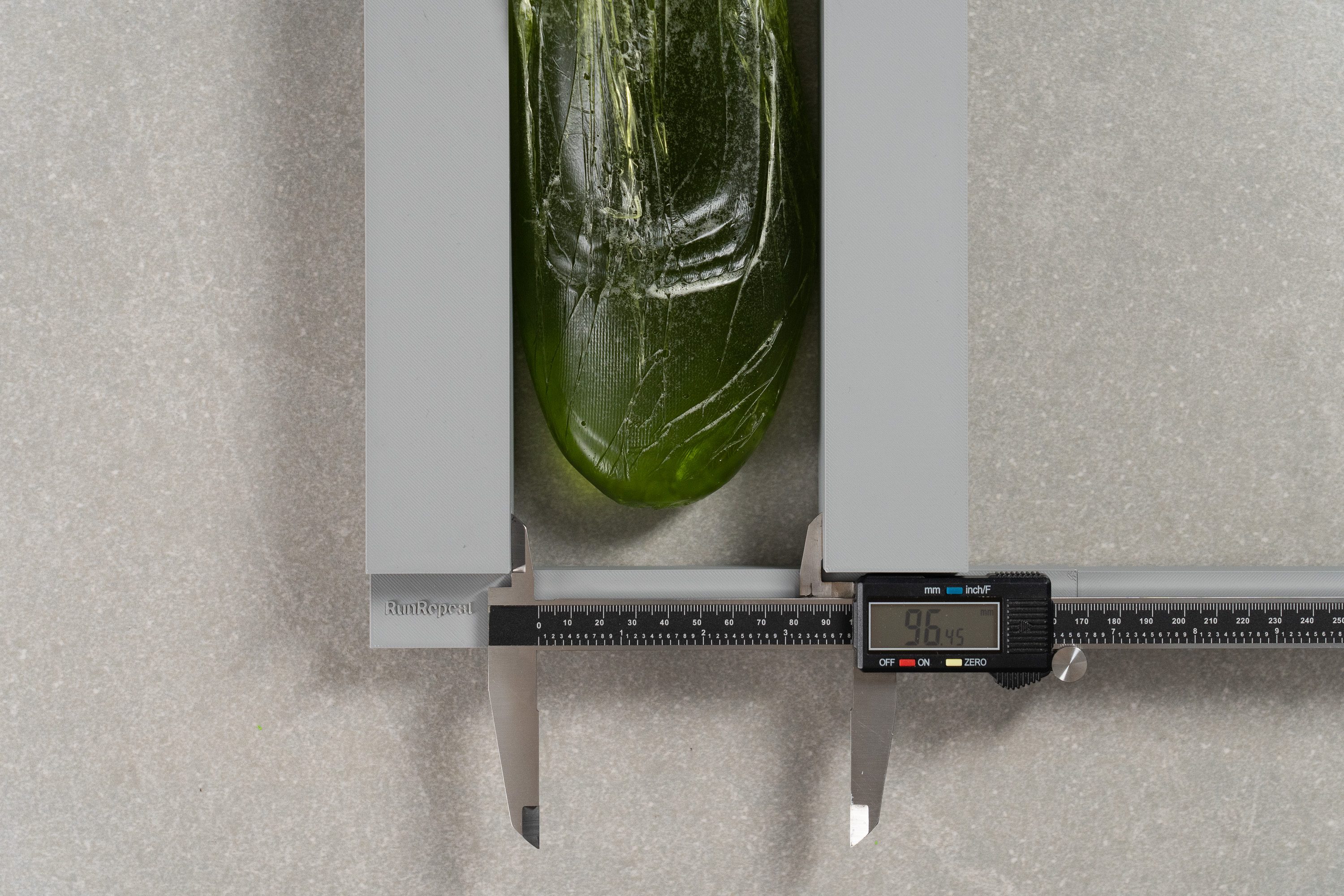
| Ghost Max 2 | 96.5 mm |
| Average | 95.1 mm |
Toebox width
Our second measurement is essential to assess toe room, as overly tapered designs can significantly limit comfort.
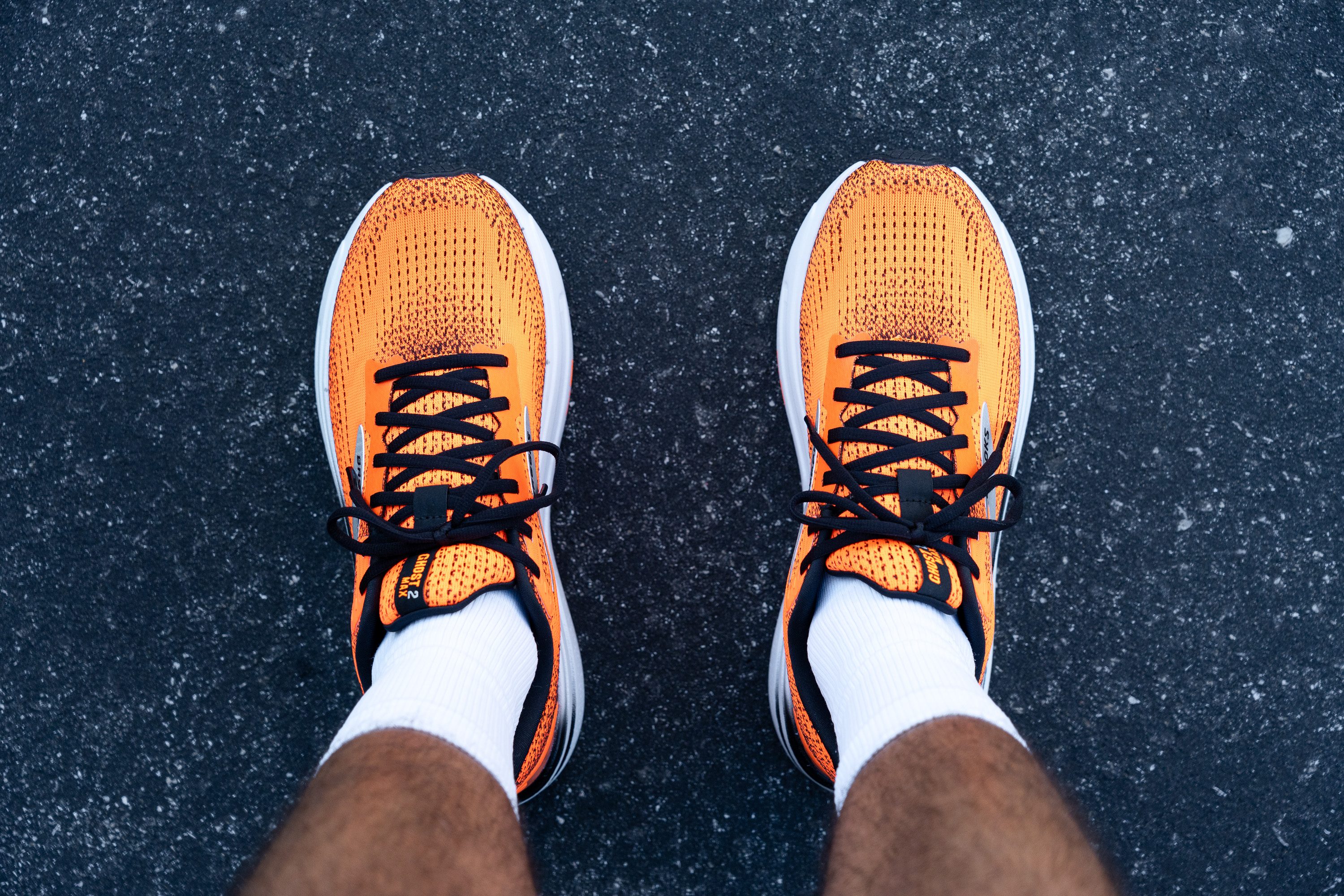
This could be the case for some individuals with the Ghost Max 2, as Brooks retained its usual tapered toebox. Our measurement of 71.0 mm in this area confirmed this.
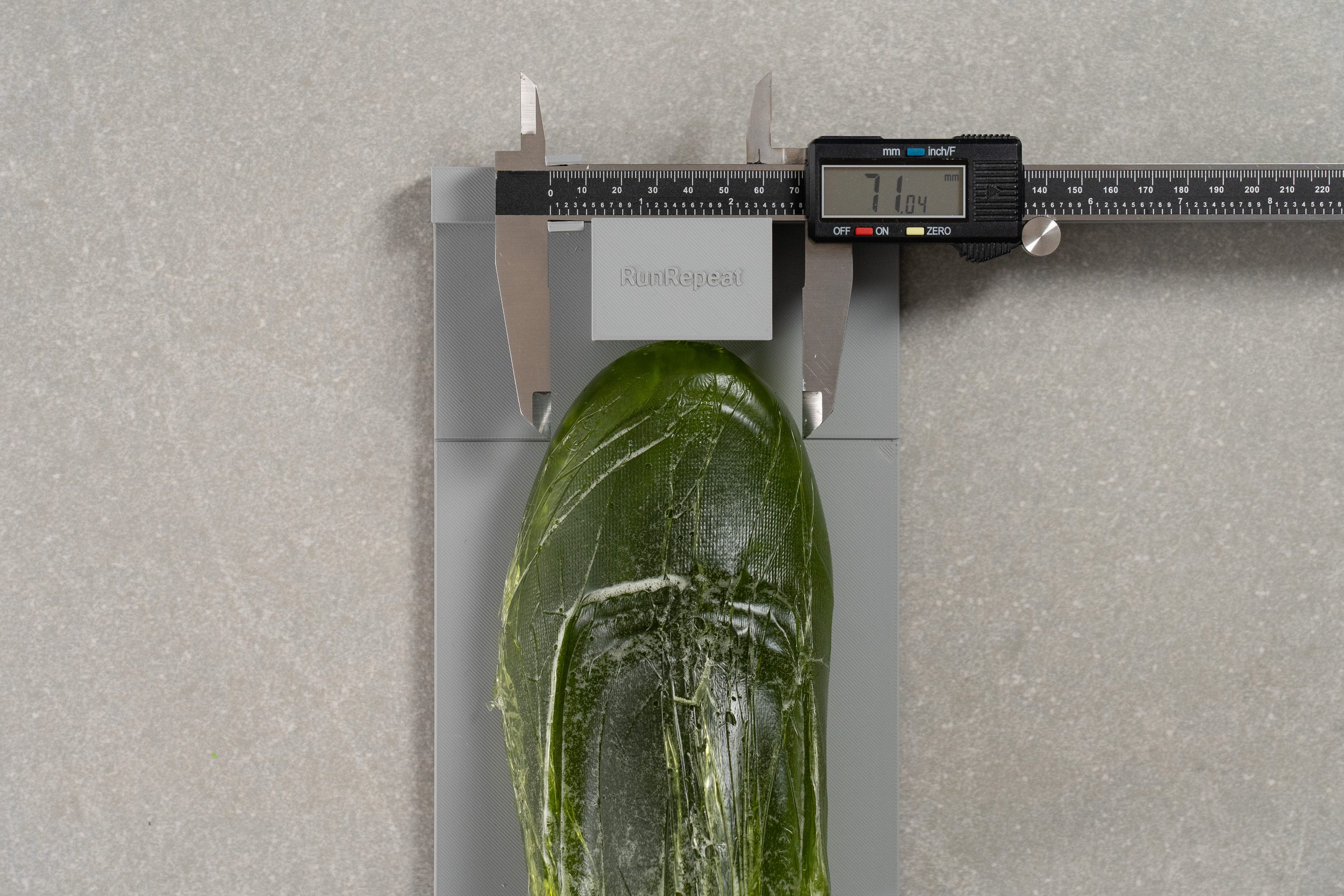
| Ghost Max 2 | 71.0 mm |
| Average | 73.3 mm |
Toebox height
We found the toebox height to be fairly average at 27.1 mm. In our experience running with the Ghost Max 2, there was no pressure on the toes, making this shoe a comfortable choice.
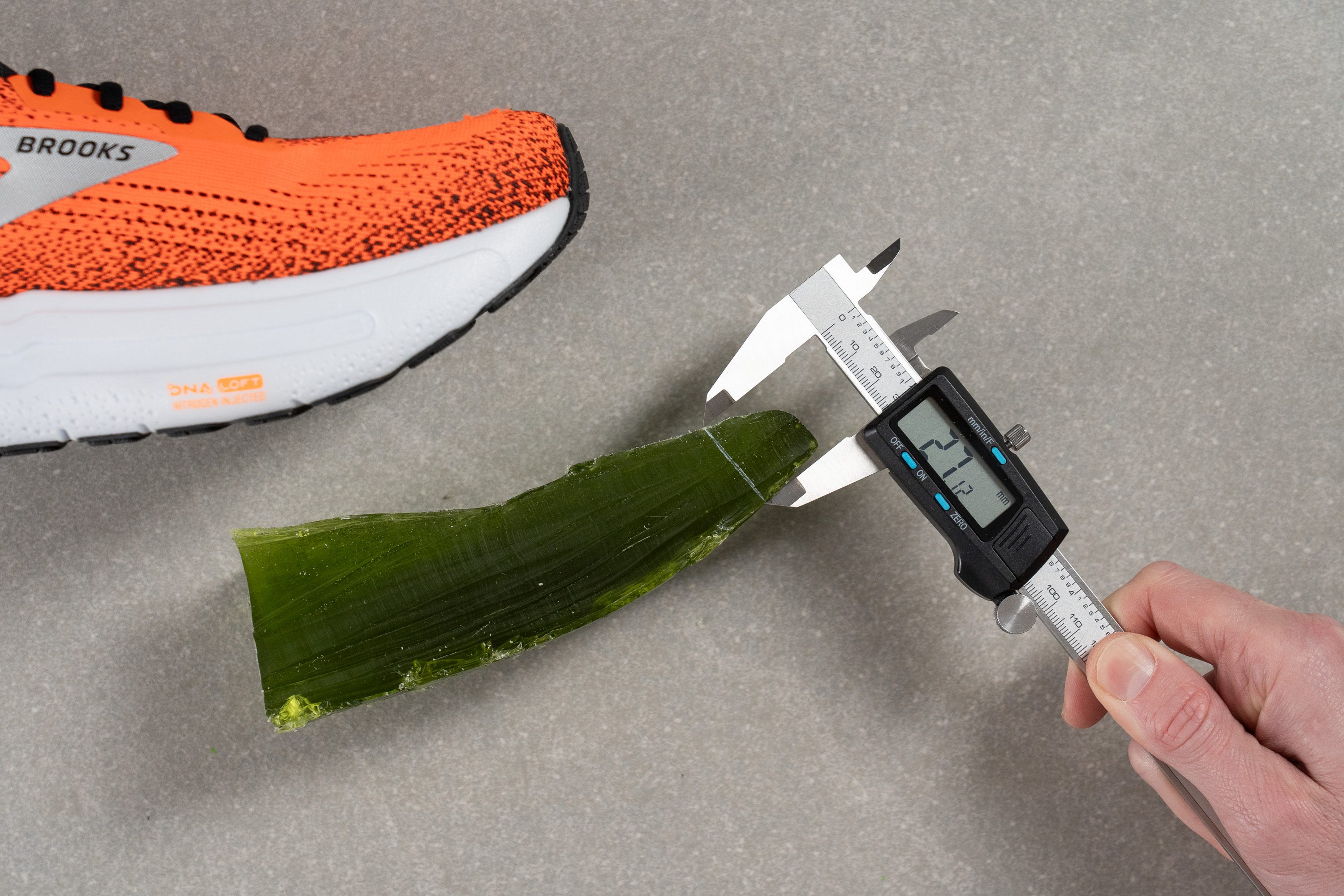
| Ghost Max 2 | 27.1 mm |
| Average | 27.0 mm |
Traction / Grip
Traction test
The shoe's excellent gripping capacity made us feel confident navigating wet pavements in the Brooks Ghost Max 2.
So when we tested its grip following the SATRA TM144 method, our personal experience was confirmed with a 0.51 coefficient of friction. It is a solid result for a road running shoe, offering a good bite on slick concrete.
| Ghost Max 2 | 0.51 |
| Average | 0.49 |
Outsole design
The outsole of the Ghost Max 2 features less rubber coverage than its predecessor, but it’s still impressive for its category. Runners who really care about durability will appreciate that most of the heel, midfoot, and forefoot remain nearly fully covered.
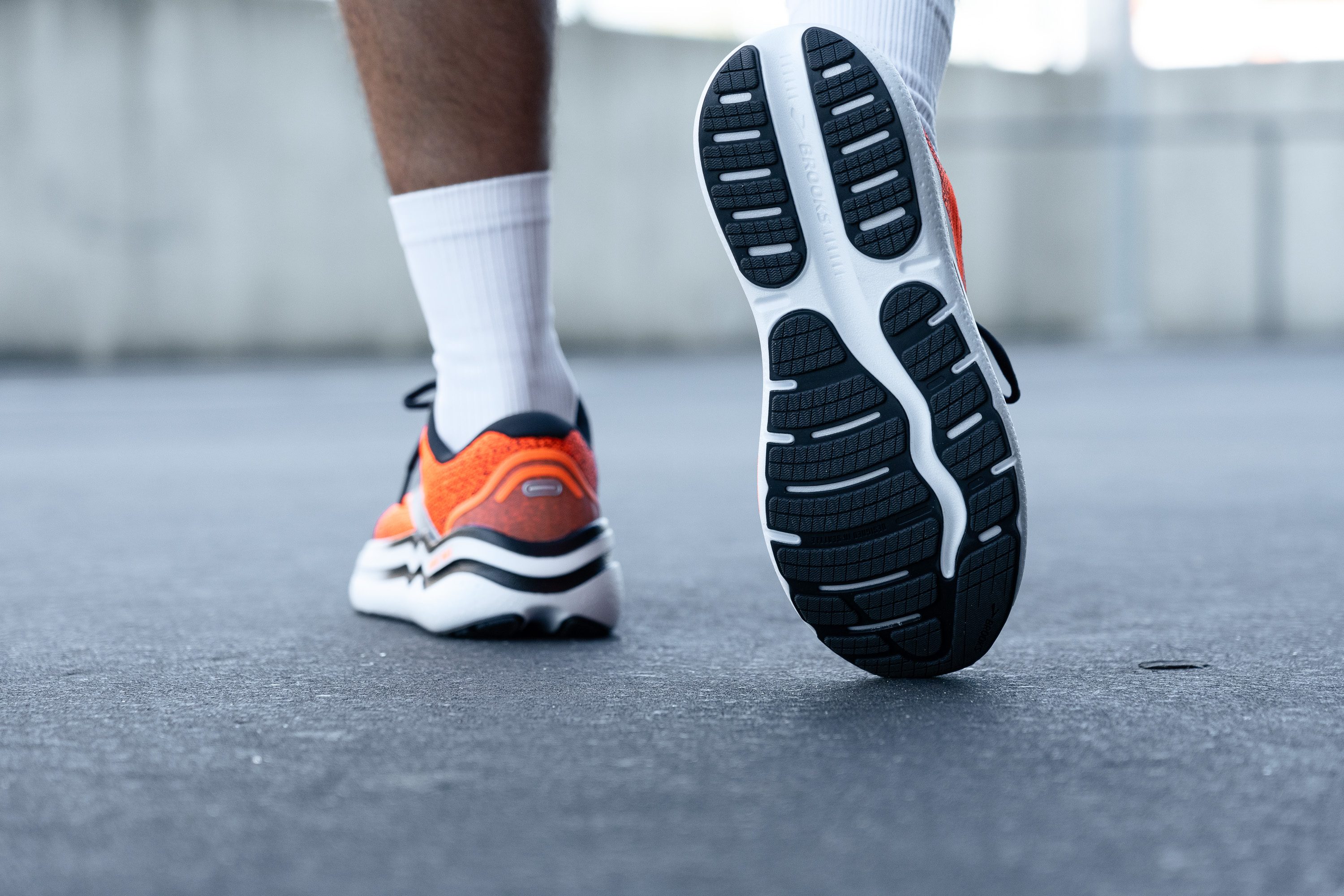
Flexibility / Stiffness
The Ghost Max 2, though a non-plated shoe, feels stiff due to its thick midsole construction. In our 30-degree bend test, we found it scored 20.0N.
From our perspective, flexibility in a shoe’s longitudinal axis is essential for those who want a shoe that can double as a lifestyle shoe. If a more flexible feel is a priority for you, the Ghost Max 2 may feel a bit clunky, and we suggest trying the Nike Vomero 17 instead.
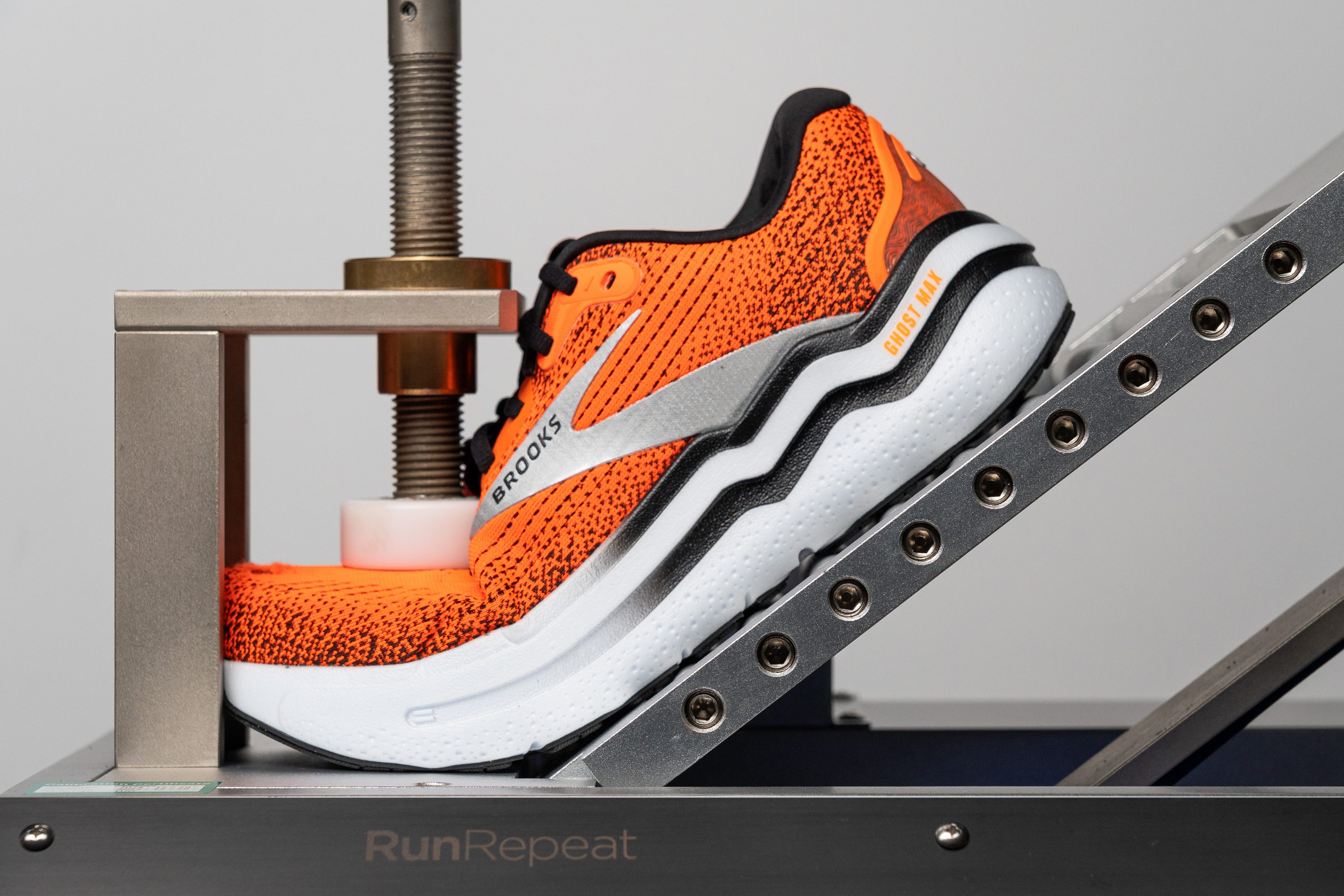
| Ghost Max 2 | 20.0N |
| Average | 15.3N |
Weight
In our own words, the weight of the original Ghost Max was “reasonable”—not exceptional, but also not a drawback. With this update, however, the weight jumps from 10.25 oz (291g) to 10.8 oz (305g), and we believe it’s starting to become a concern.
While not disastrous, we feel this shoe would benefit significantly from a lighter build, and getting the Ghost Max series under 10 oz should be a priority for future iterations.
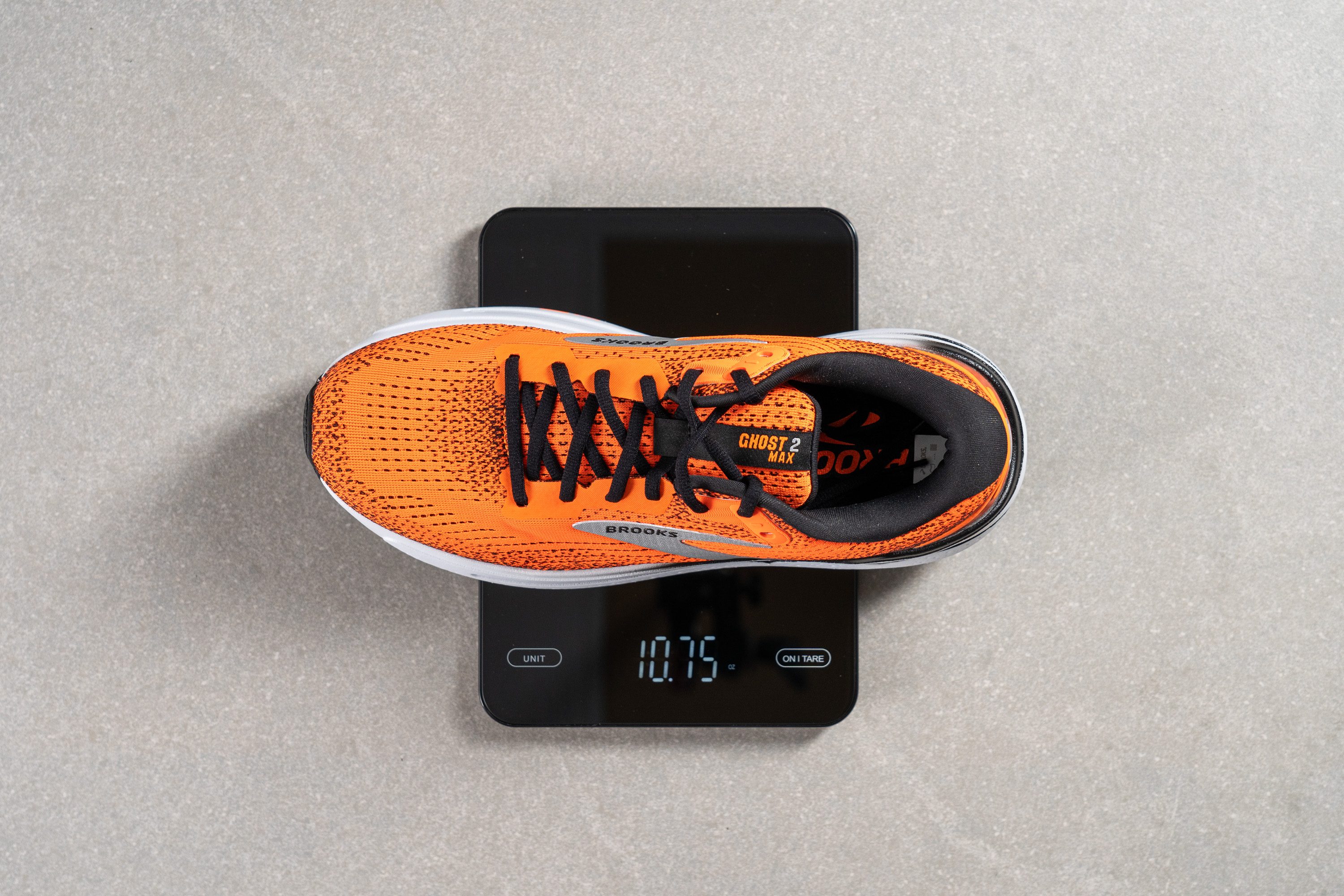
| Ghost Max 2 | 10.8 oz (305g) |
| Average | 9.3 oz (264g) |
Breathability
The 3D Fit Print upper of the Brooks Ghost Max 2 shows only slight changes in ventilation from its predecessor, which makes sense, as it performed exceptionally well. Minor tweaks have helped this second version reach a solid 5-out-of-5, ensuring maximum airflow.
After testing with our smoke machine, we switched to an LED flashlight to reveal Brooks’ approach. We found numerous ventilation holes in the toebox, with additional perforations extending through the lateral and medial sections.
Under our microscope, these ventilation holes appeared in a straightforward yet effective engineered mesh pattern, with consistent vertical openings.
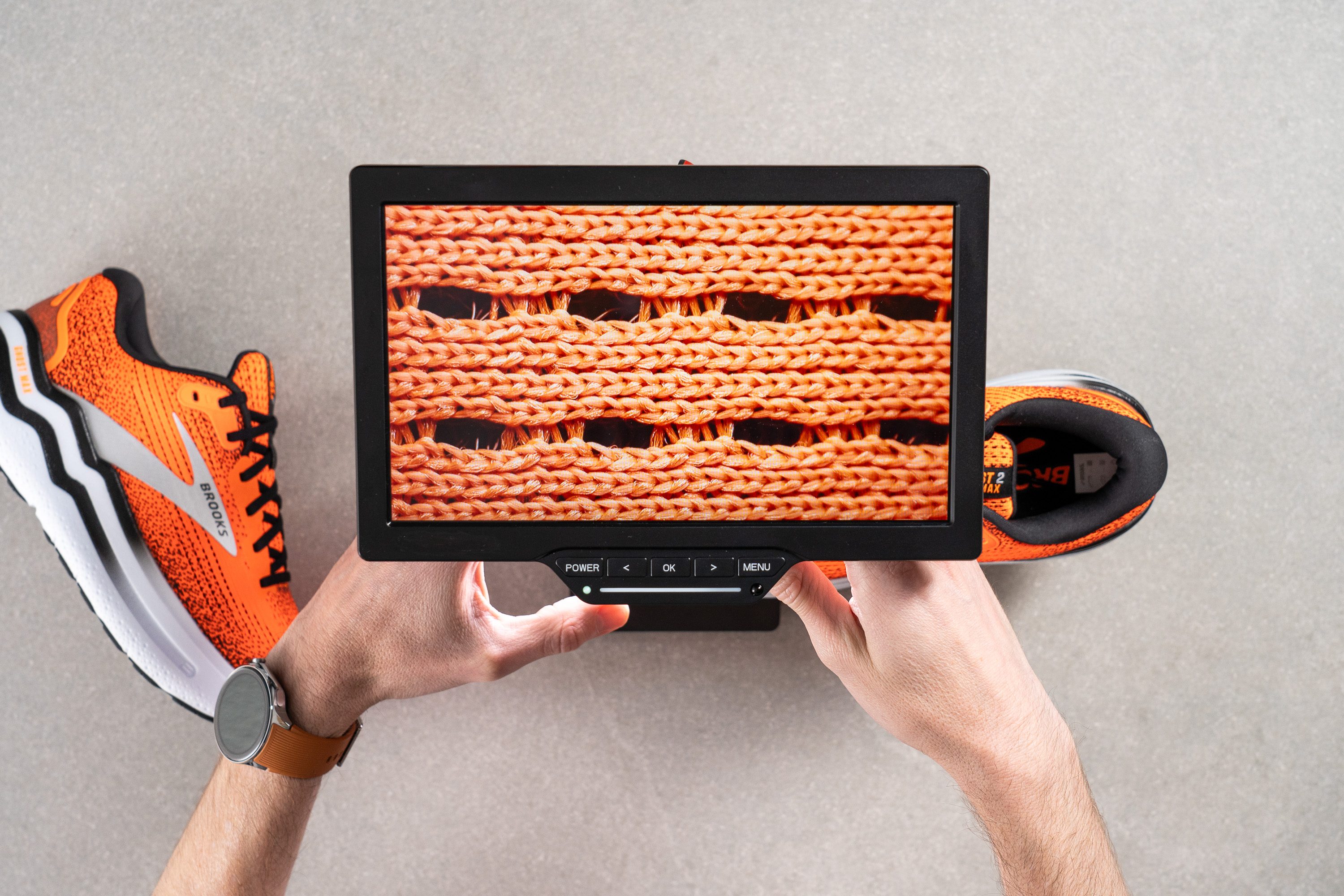
This airy design may impact durability, but we’ll worry about that in a minute.
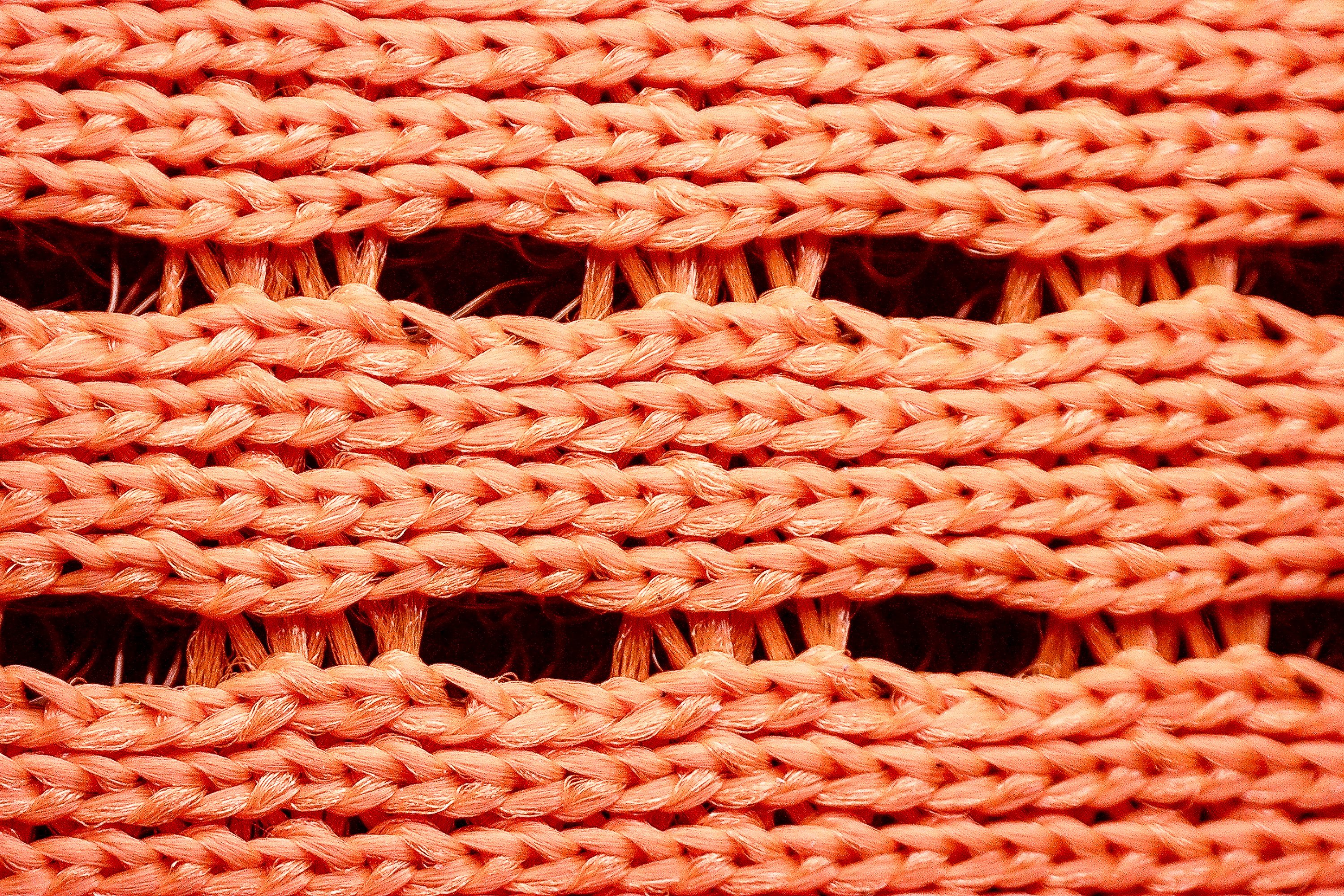
Taking a broader view, the upper remains familiar—Brooks opted for a safe design with generous cushioning in the heel and tongue, paired with thin mesh elsewhere.
| Ghost Max 2 | 5 |
| Average | 3.7 |
Stability
Lateral stability test
Despite being a neutral running shoe without dedicated support features, we believe Brooks has prioritized stability in this model. We found that the central channel in the outsole contributes significantly to a balanced, centered ride, as well as the supportive midsole sidewalls and broad dimensions.
In our testing, the shoe’s wider heel and midfoot—considerably broader than an average daily trainer—offers a solid, steady feel that’s ideal for runners seeking a tall-yet-stable platform.
Torsional rigidity
Another key factor in this shoe’s stability is its rigidity. Scoring 4/5, it’s on the upper edge for an everyday trainer and might even feel overly stiff for some runners. Increasing the stack height demands certain trade-offs...
| Ghost Max 2 | 4 |
| Average | 3.5 |
Heel counter stiffness
The heel counter stiffness scored another 4/5, though this one didn’t surprise us.
After testing numerous Brooks shoes here in the lab, we've observed their love for concrete-like heel counters, and the Ghost Max 2 is no exception. We could barely flex it, making it an ideal choice for those needing extra heel stability.
| Ghost Max 2 | 4 |
| Average | 2.9 |
Midsole width - forefoot
Widening this shoe compared to the regular Ghost was essential; otherwise, stability would’ve taken a significant hit.
Using our digital calipers, we measured 118.7 mm in the forefoot—undeniably on the broader side and a welcome feature for forefoot and midfoot strikers.
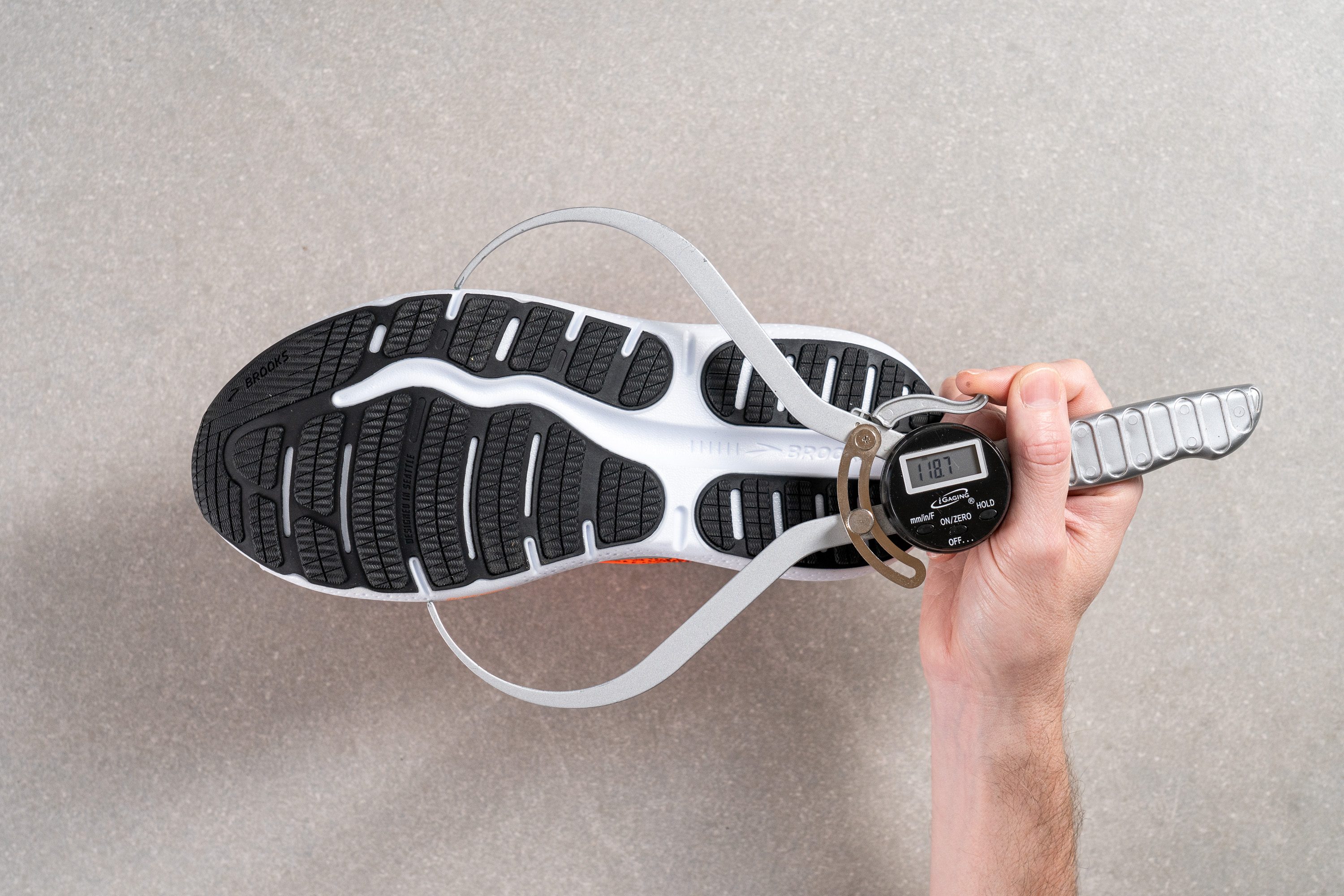
| Ghost Max 2 | 118.7 mm |
| Average | 114.4 mm |
Midsole width - heel
We found the heel to have a substantial width at 99.3 mm—proportionally even wider than the forefoot compared to the average shoe.
This extra width is well-suited for extreme heel strikers. However, in our experience, the lack of a heel bevel is still a problem for this group of runners, reinforcing our view that this shoe remains best suited for forefoot and midfoot strikers.
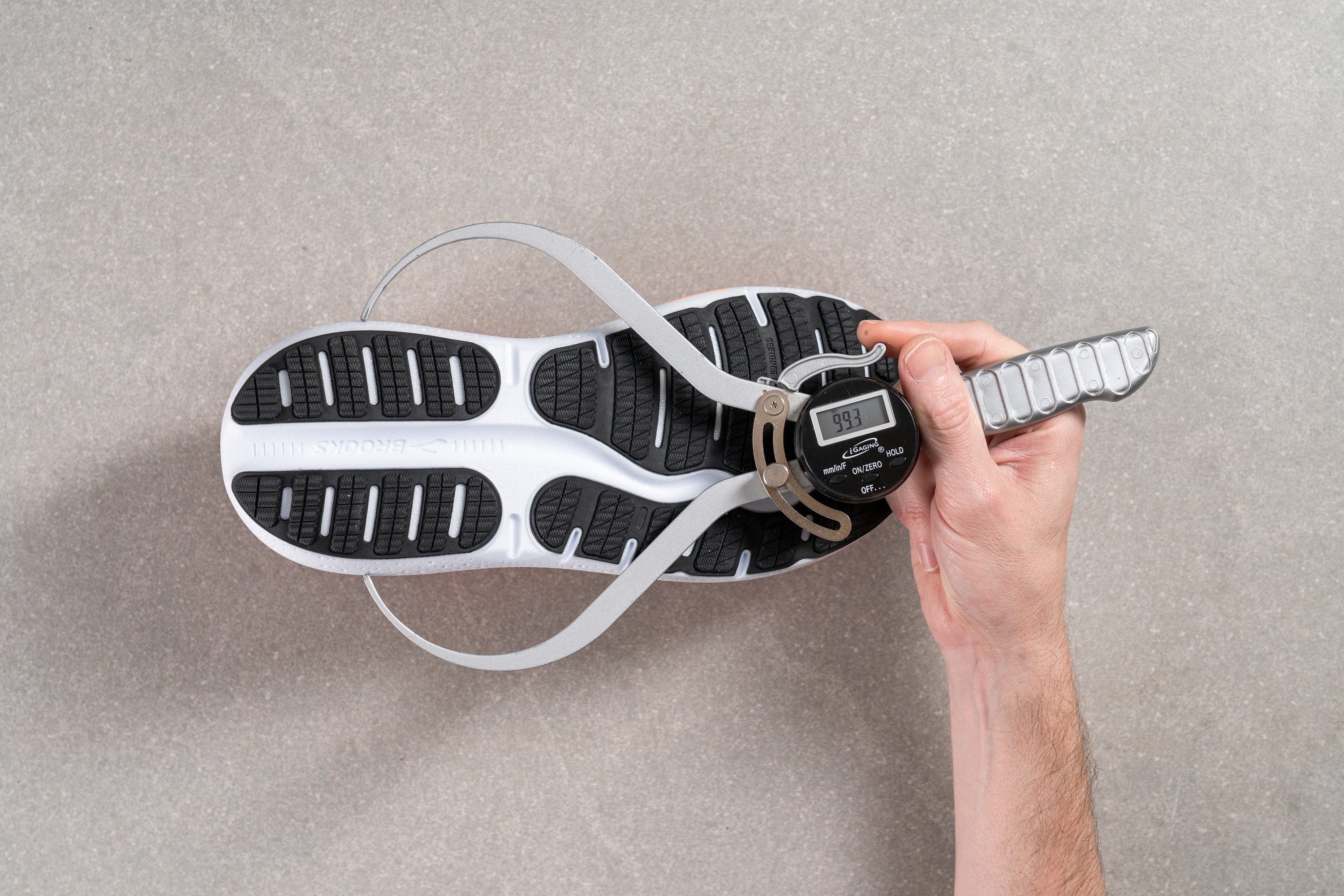
| Ghost Max 2 | 99.3 mm |
| Average | 90.6 mm |
Durability
Toebox durability
We hinted at concerns over durability, as uppers with extensive ventilation holes often struggle in durability tests. However, the Ghost Max 2 held up surprisingly well given its airy design.
Despite the orange mesh tearing apart, the inner black fabric provided enough resilience to keep the structure of the upper. In our view, the dual-layer construction was a smart choice—earning the Ghost Max 2 a respectable 3/5 for durability.
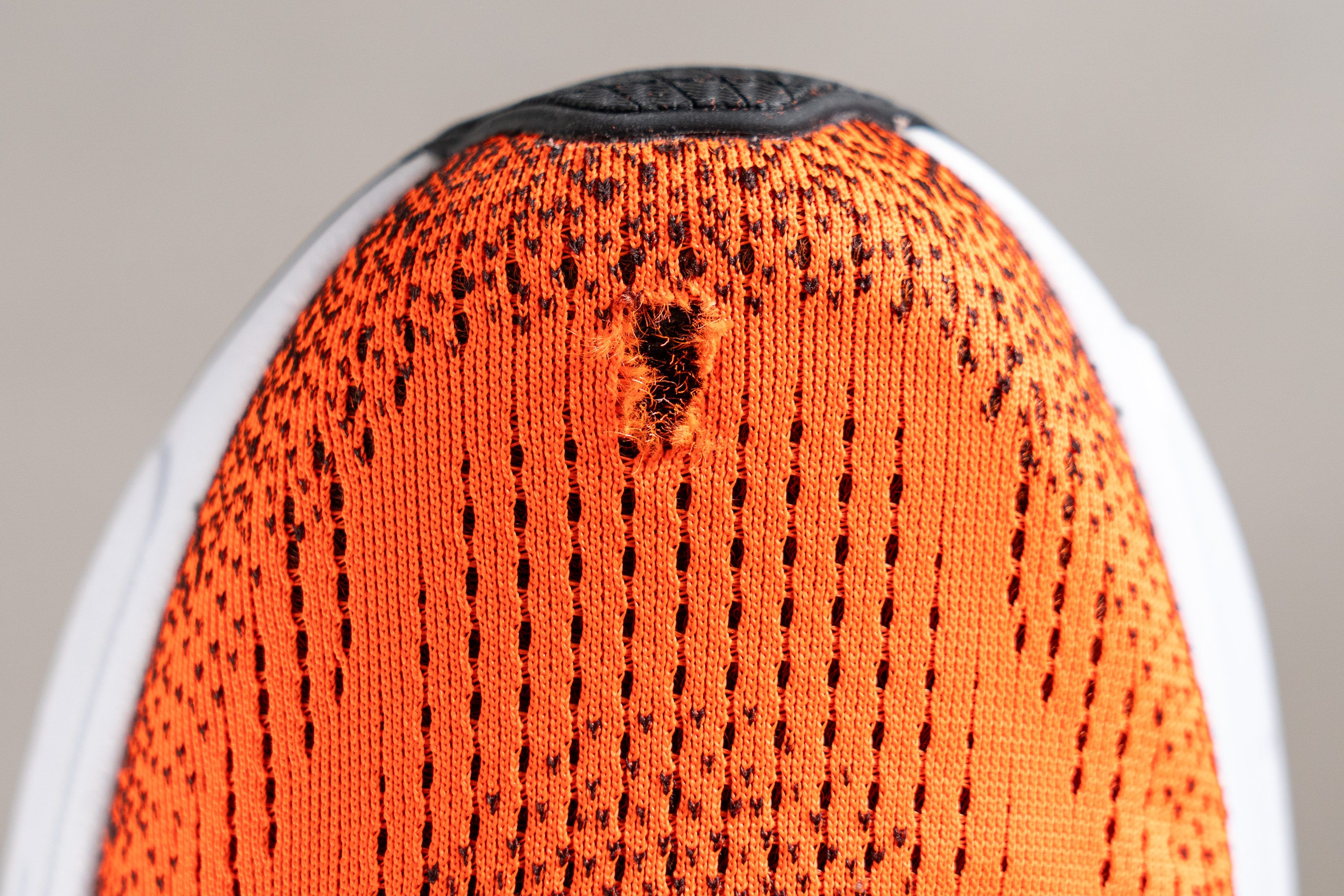
| Ghost Max 2 | 3 |
| Average | 2.6 |
Heel padding durability
A major concern for many runners is the durability of heel padding in new shoes—once it wears a hole, discomfort usually follows quickly.
In our lab, we tested the heel padding of the Ghost Max 2 using the Dremel, and it held up well, earning a solid 4/5. No need to worry here!
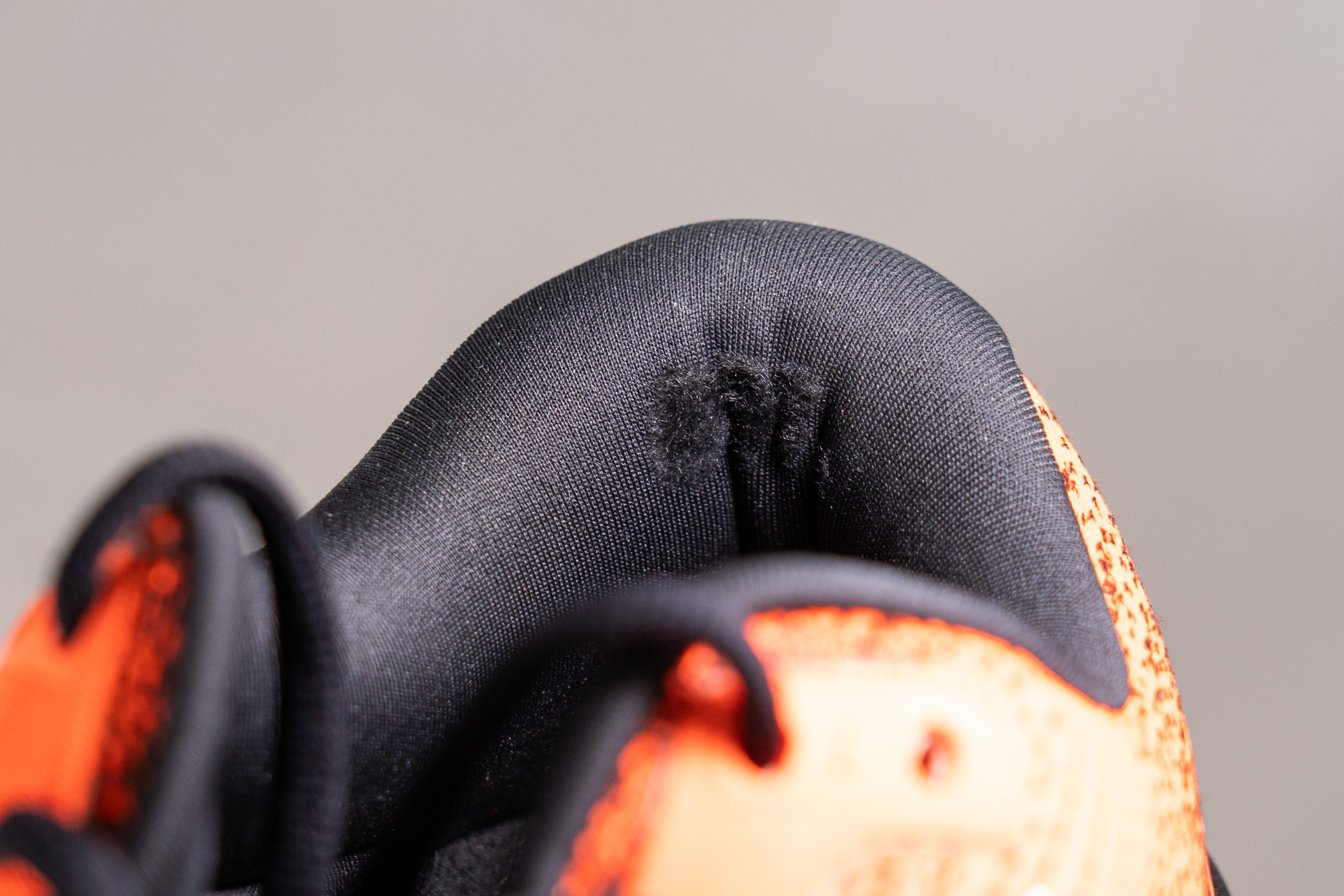
| Ghost Max 2 | 4 |
| Average | 3.4 |
Outsole durability
With moderate hardness in the blown rubber used on the outsole, we expected an average durability score.
In our test, the Ghost Max 2, while slightly underperforming its predecessor, showed a minimal 0.8 mm indentation. We believe this result indicates strong durability and reliable wear resistance, even for those running on multiple surfaces.
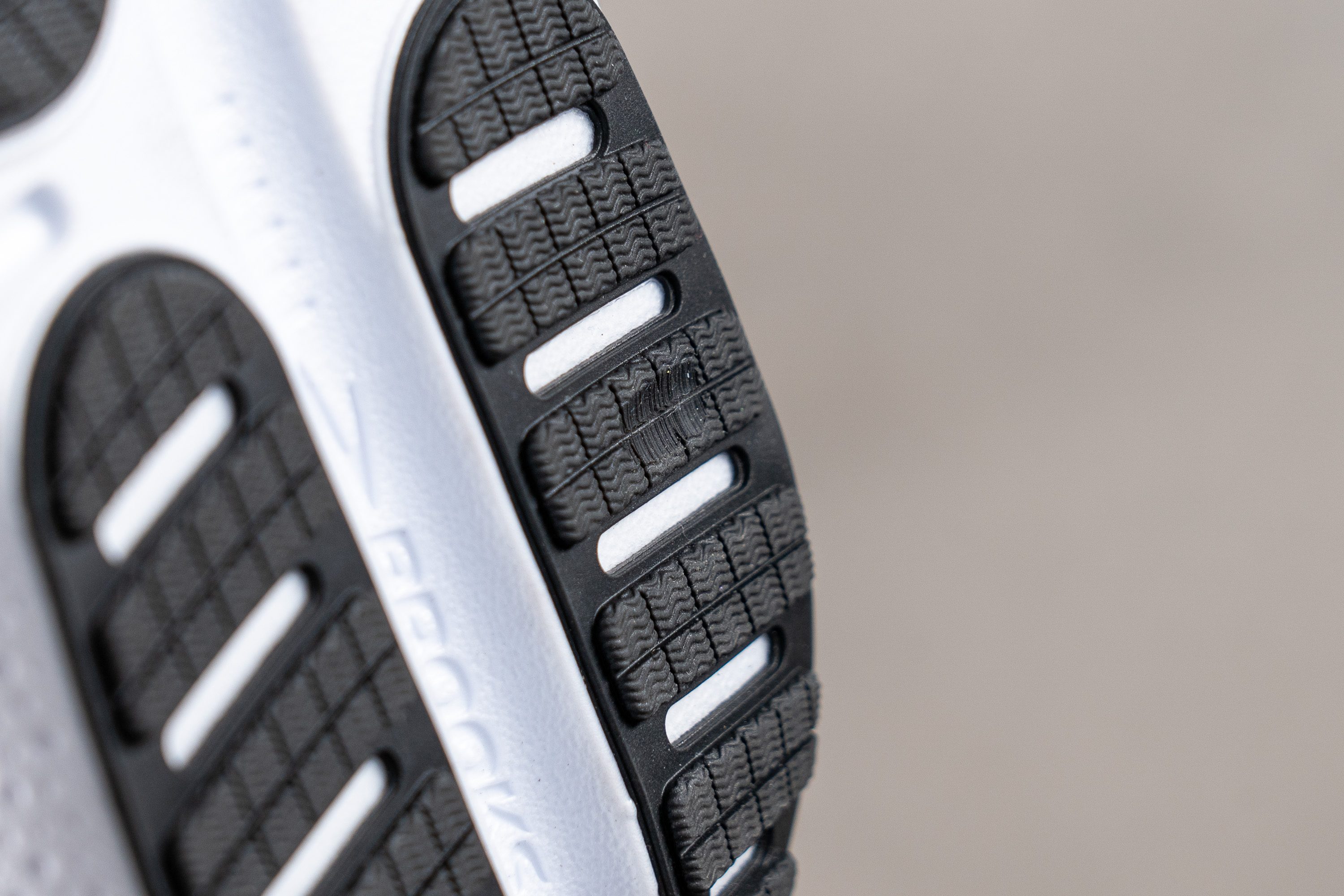
| Ghost Max 2 | 0.8 mm |
| Average | 1.1 mm |
Outsole thickness
We measured the rubber thickness and found 3.8 mm in two stacked layers—a flat base layer topped with grippier, textured pods that also enhance flexibility through horizontal cutouts.
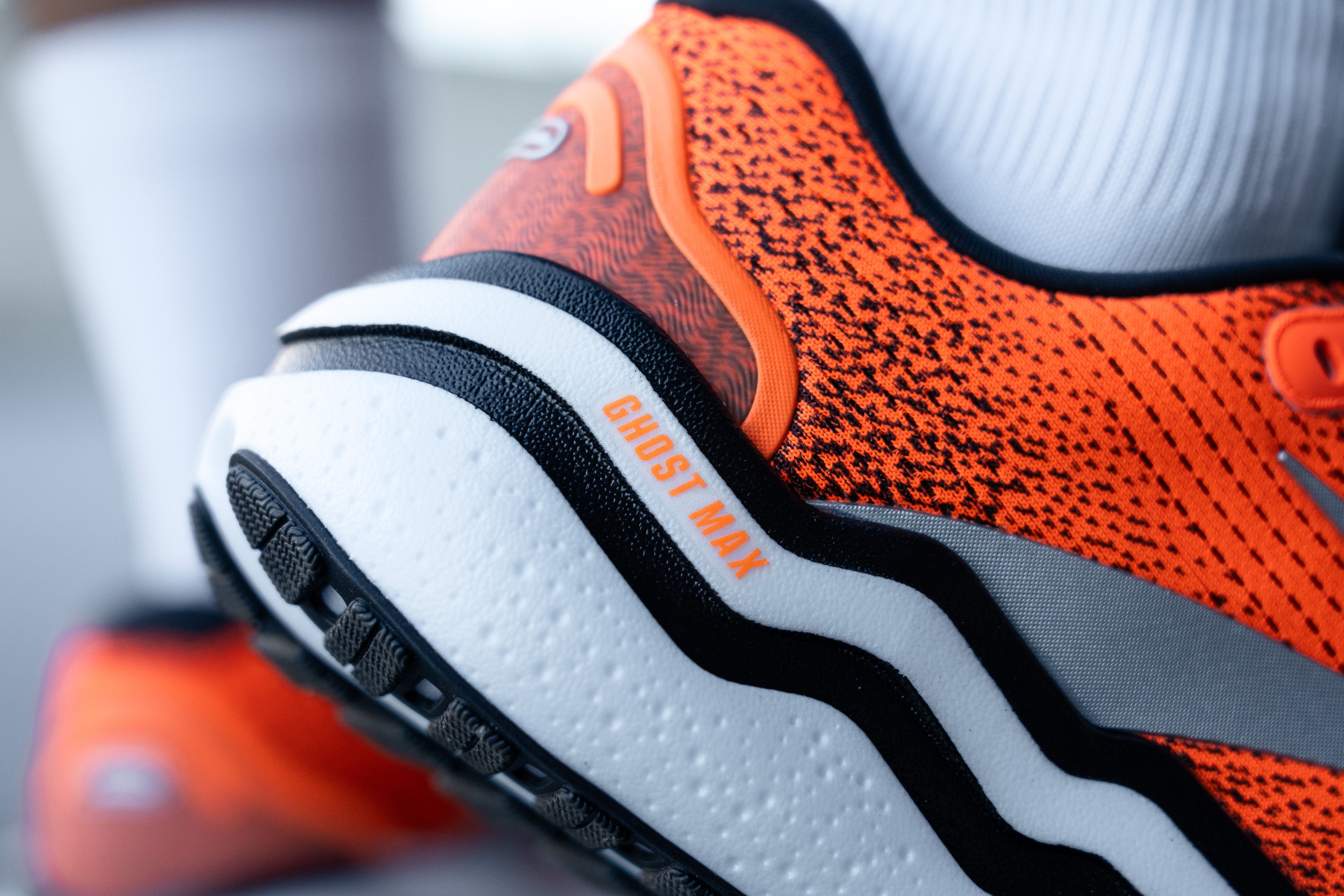
In our experience, this feels like an excess of rubber, especially given its strong performance in our Dremel test. The added thickness likely contributes to the Ghost Max 2’s slightly heavier feel, which we found noticeable during all of our runs.
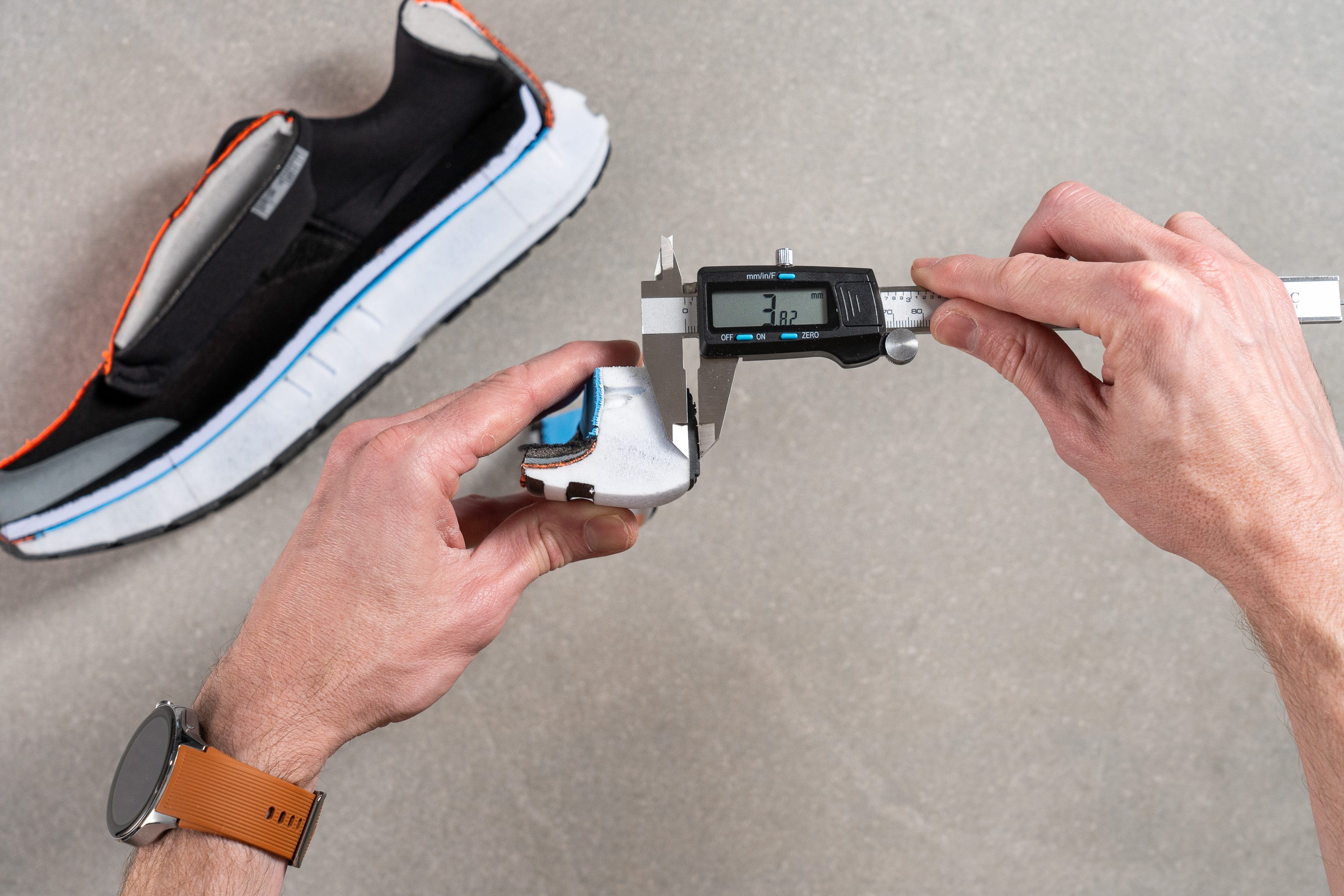
| Ghost Max 2 | 3.8 mm |
| Average | 3.2 mm |
Misc
Insole thickness
It seems to us that Brooks simply took the regular Ghost and made every component a bit more substantial—the insole included! This thicker, comfort-focused footbed measures 6.3 mm, adding a welcome boost in plushness that’s rare outside of some brands like Saucony, which occasionally uses similarly thick insoles.
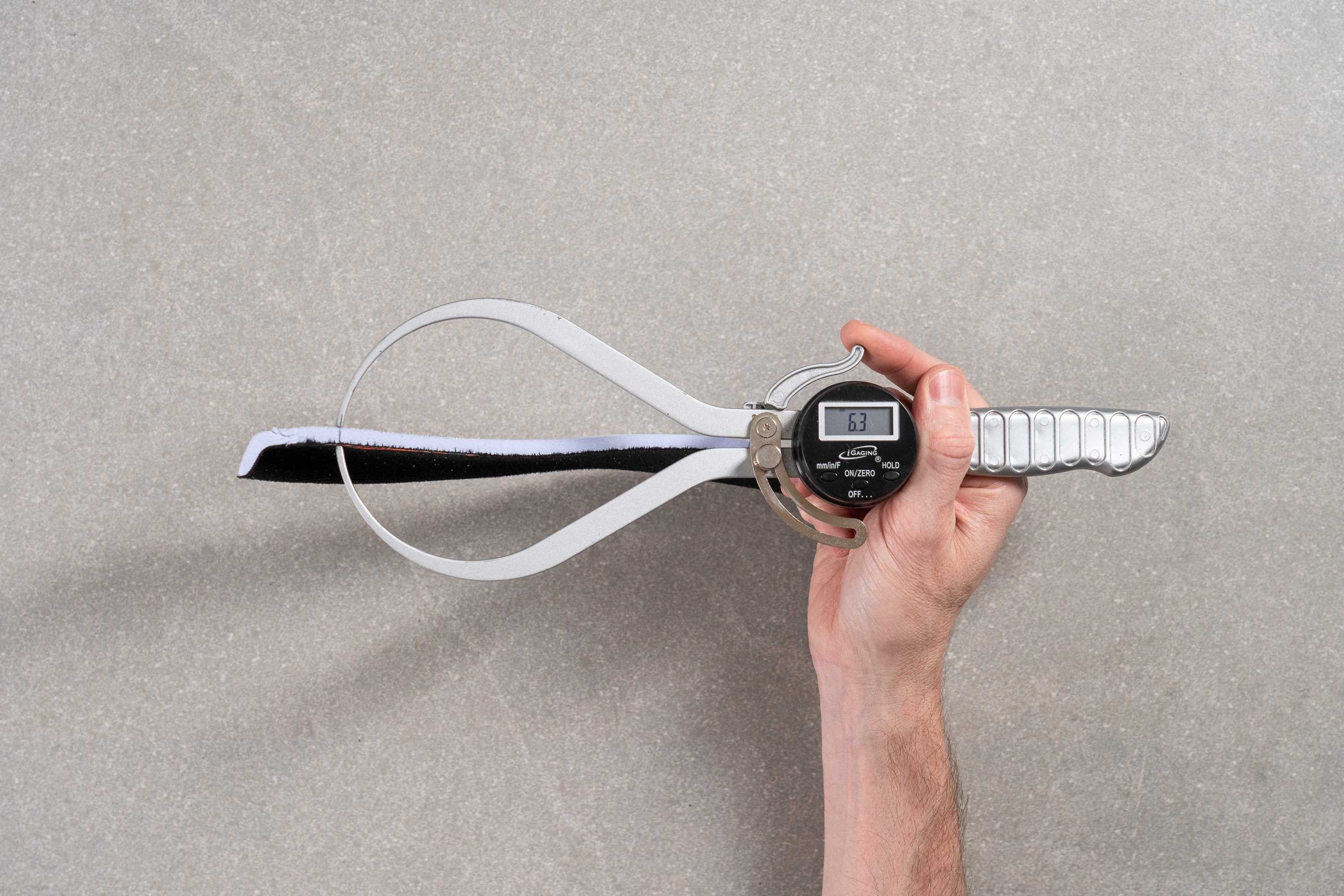
| Ghost Max 2 | 6.3 mm |
| Average | 4.5 mm |
Removable insole
You can easily swap out the removable insole of the Ghost Max 2 for custom footbeds, and we found that its thick stock footbed leaves ample space inside the shoe when removed, making it one of the most orthotics-friendly daily trainers available right now.
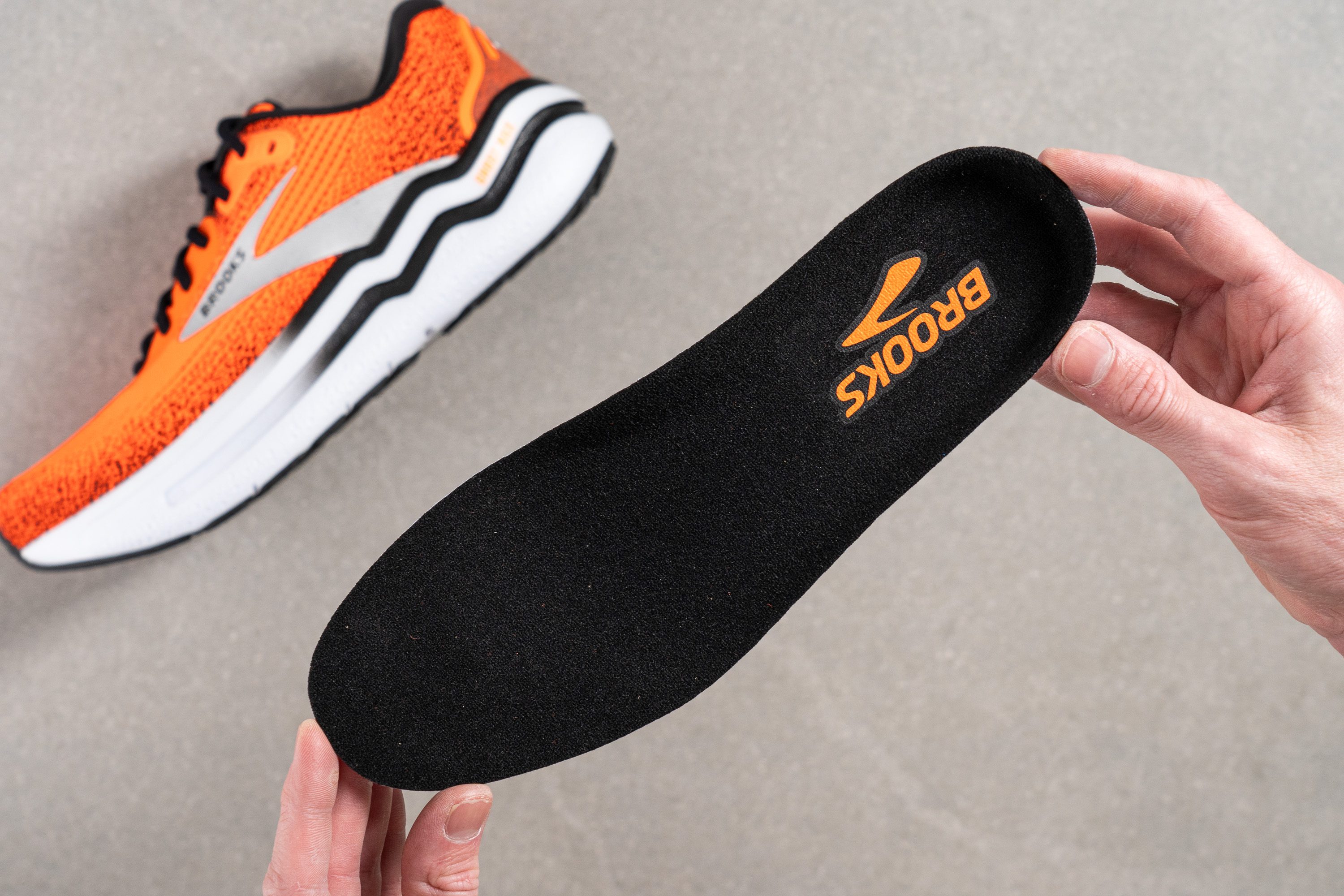
| Ghost Max 2 | Yes |
Midsole softness in cold (%)
To evaluate the Ghost Max 2’s performance in extreme cold, we placed it in a freezer for 20 minutes and then retested it. After freezing, it registered a teeth-grinding 28.0 HA—a 35.7% uptick that’s certainly noticeable.
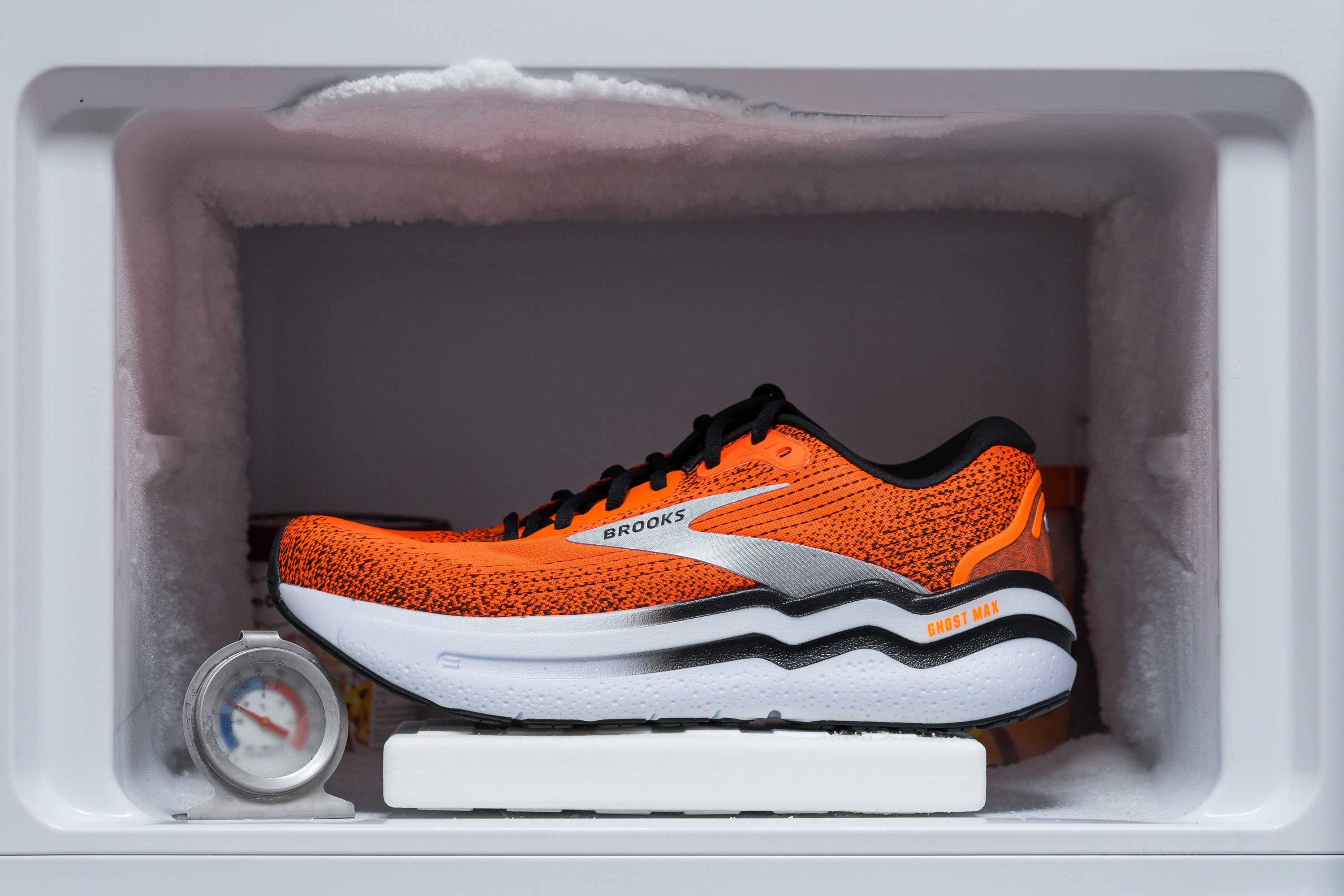
| Ghost Max 2 | 36% |
| Average | 24% |
Reflective elements
Brooks missed an opportunity by omitting reflective elements in the Max 2—a letdown given our hopes for this update.
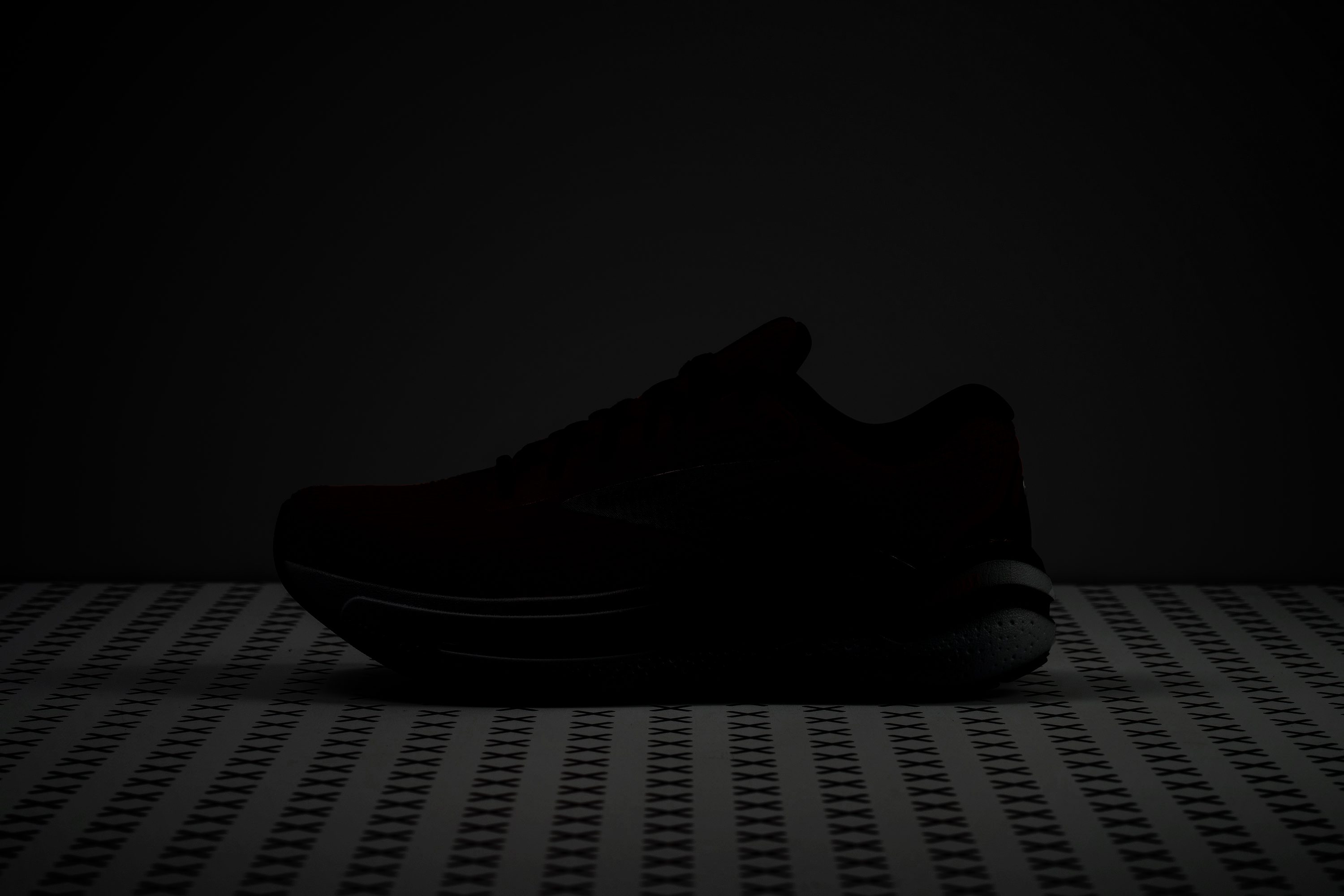
| Ghost Max 2 | No |
Tongue padding
We were genuinely disappointed to find yet another non-gusseted tongue, though we appreciated that Brooks retained the plush, 8.7-mm tongue padding, making the tongue itself incredibly comfortable.
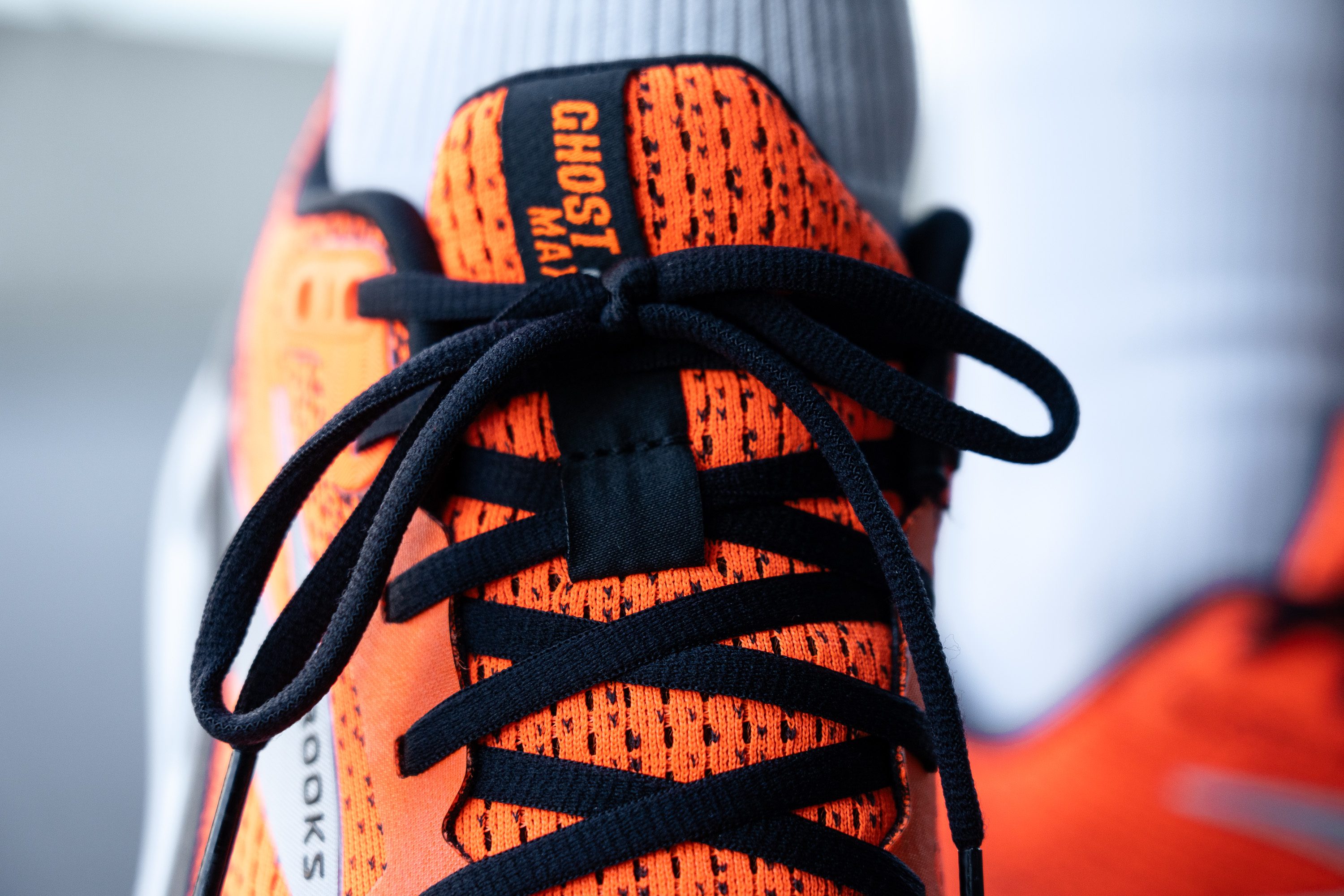
While the tongue does shift a bit due to its non-fixed design, we found that Brooks tried to address this by moving the tongue loop higher up compared to the previous generation, to help keep it centered while running.
It’s not a perfect fix (hey, Brooks!), but we think it’s fine for now, especially given the shoe's reasonable price.
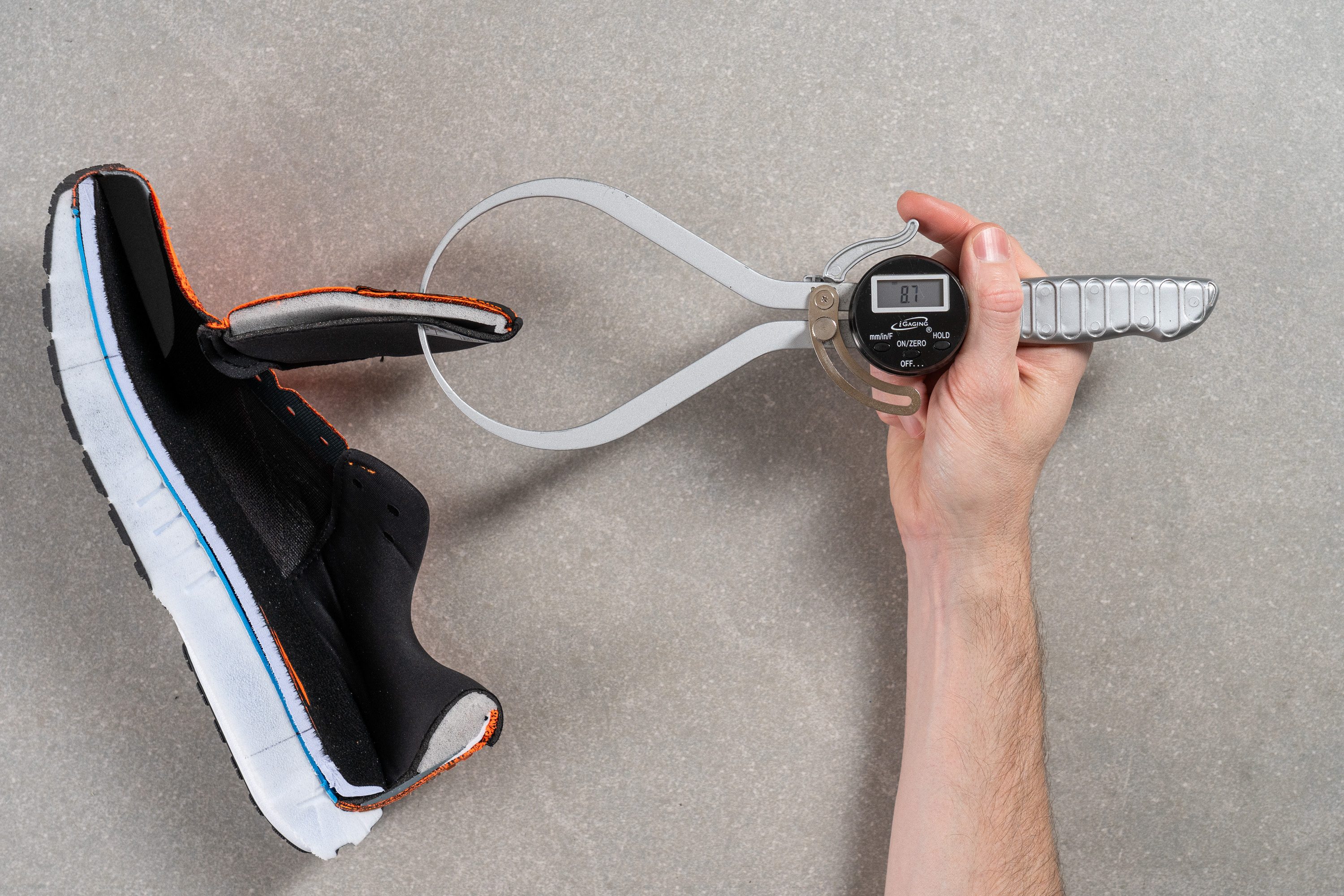
| Ghost Max 2 | 8.7 mm |
| Average | 5.7 mm |
Tongue: gusset type
When we unboxed the Ghost Max 2, our first check was the tongue—one of the biggest drawbacks in the original Ghost Max, if you ask us. Unfortunately, our concerns were confirmed, as Brooks once again opted for a non-gusseted tongue in this update. Maybe third time's a charm?

| Ghost Max 2 | None |
Price
One of the standout benefits of the Ghost Max 2 is its price—only $10 more than the standard Ghost 16—while offering significant improvements in cushioning and comfort. Compared to similar daily trainers on the market, we think it’s competitively priced.
| Ghost Max 2 | $150 |
| Average | $153 |
Heel tab
We observed a similar design in the heel when compared to the first-gen Ghost Max, once again skipping the convenient heel tab and extending the heel collar cushioning slightly toward the outer part of the upper. This approach also aligns well with recent Brooks design trends.
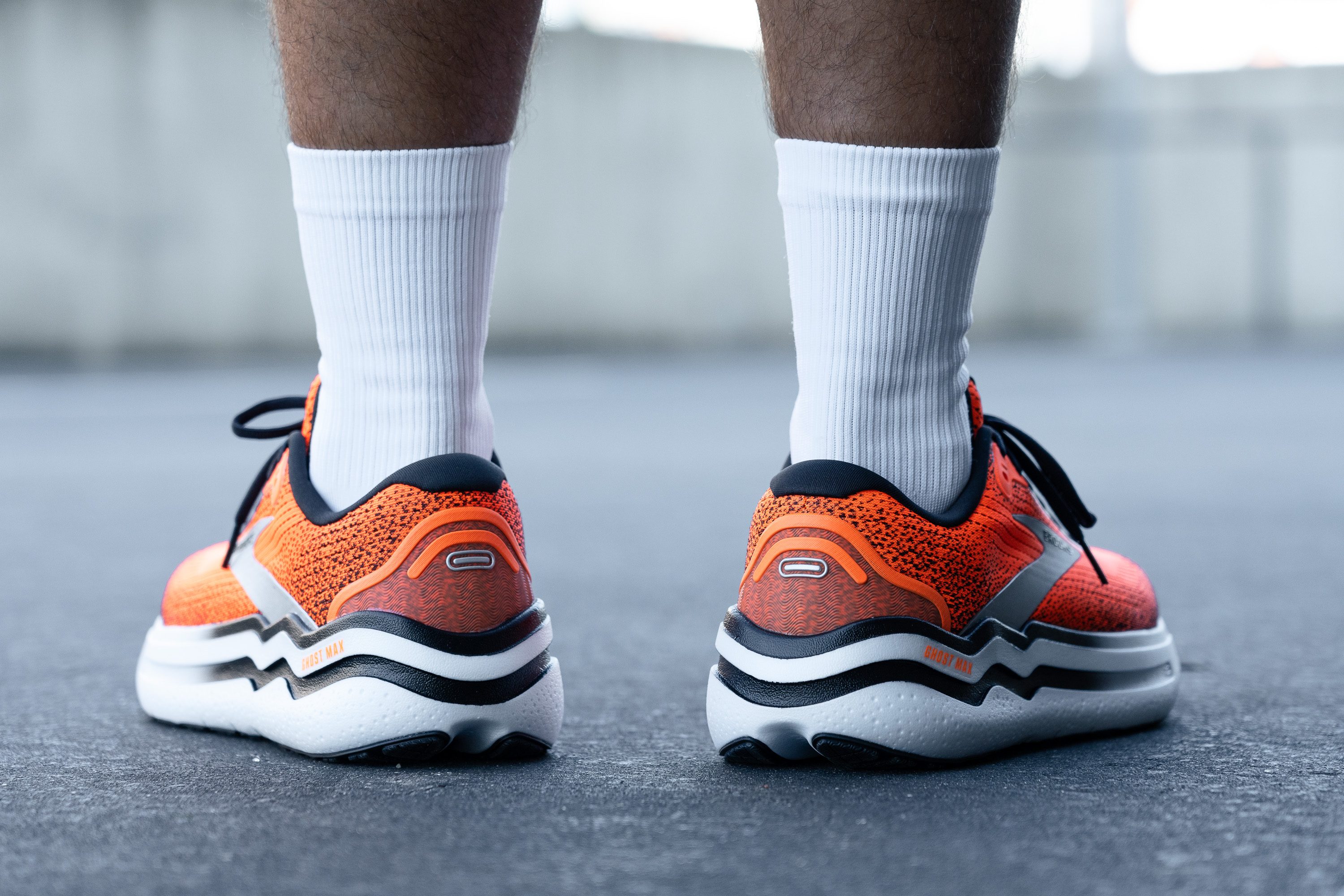
| Ghost Max 2 | None |

